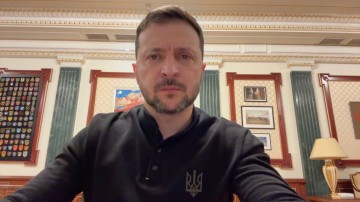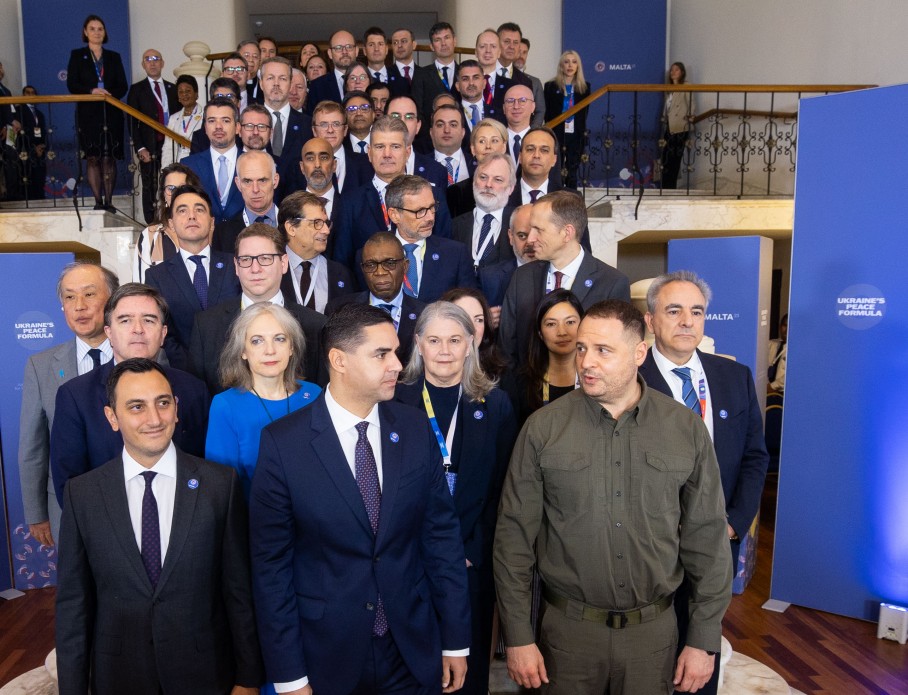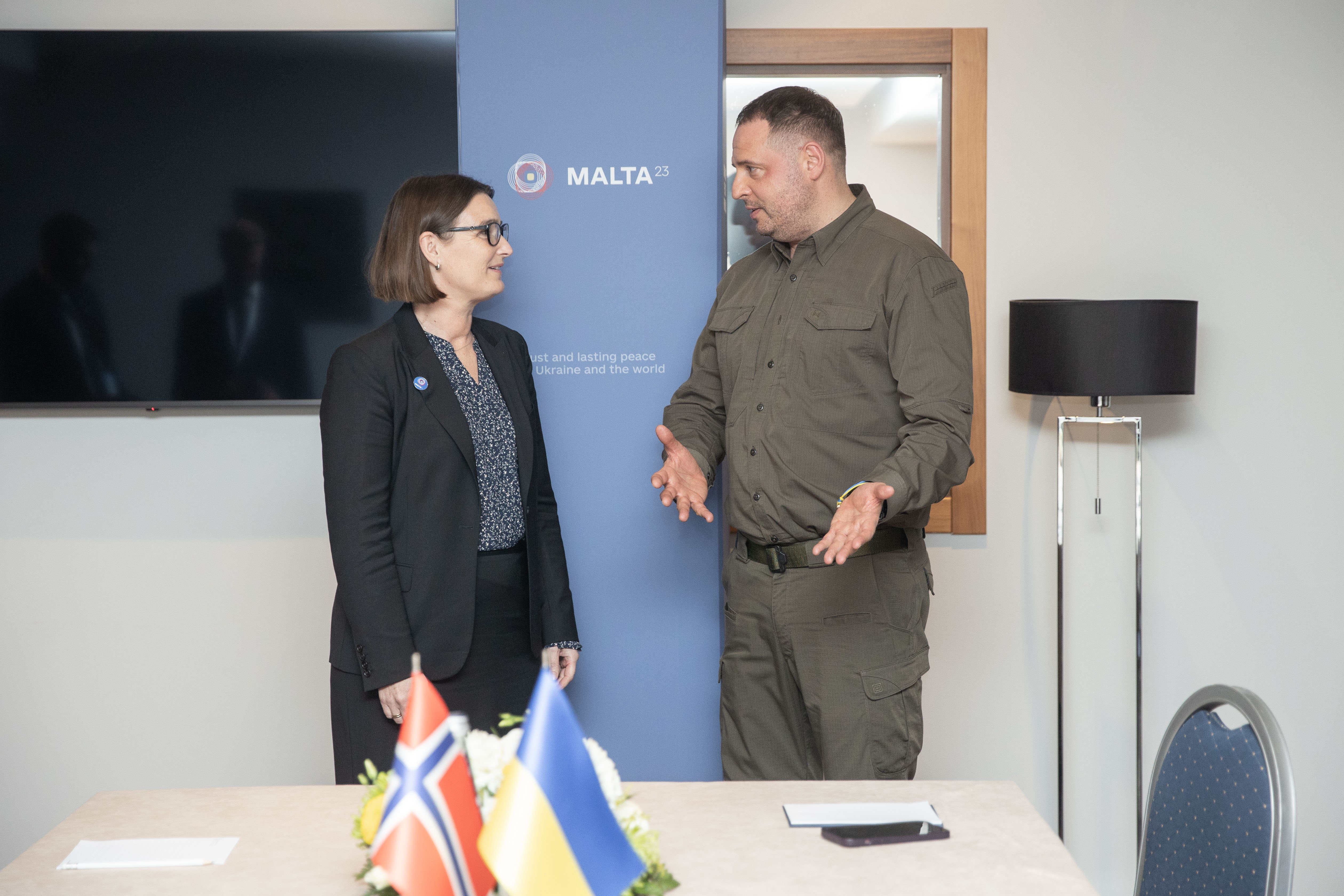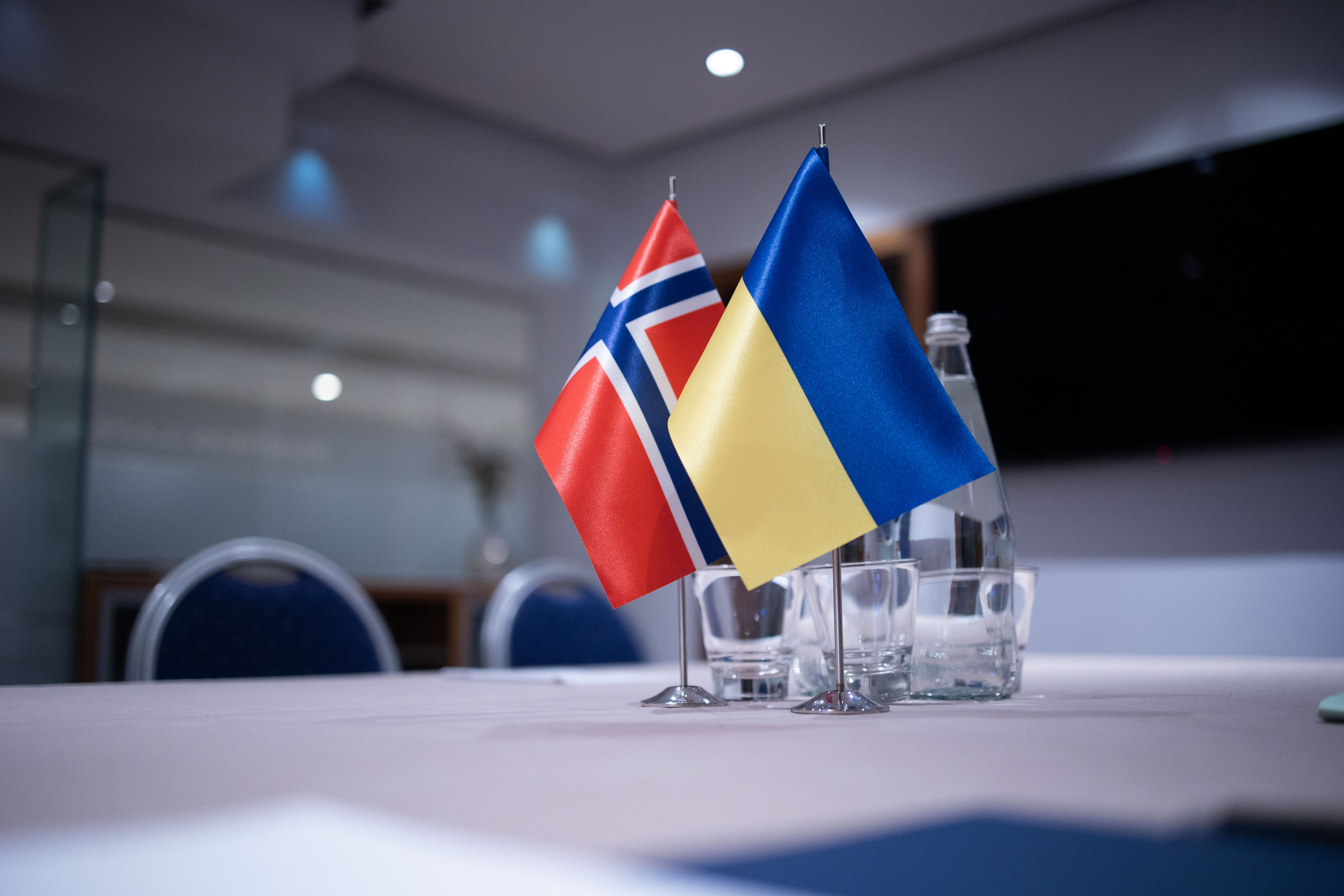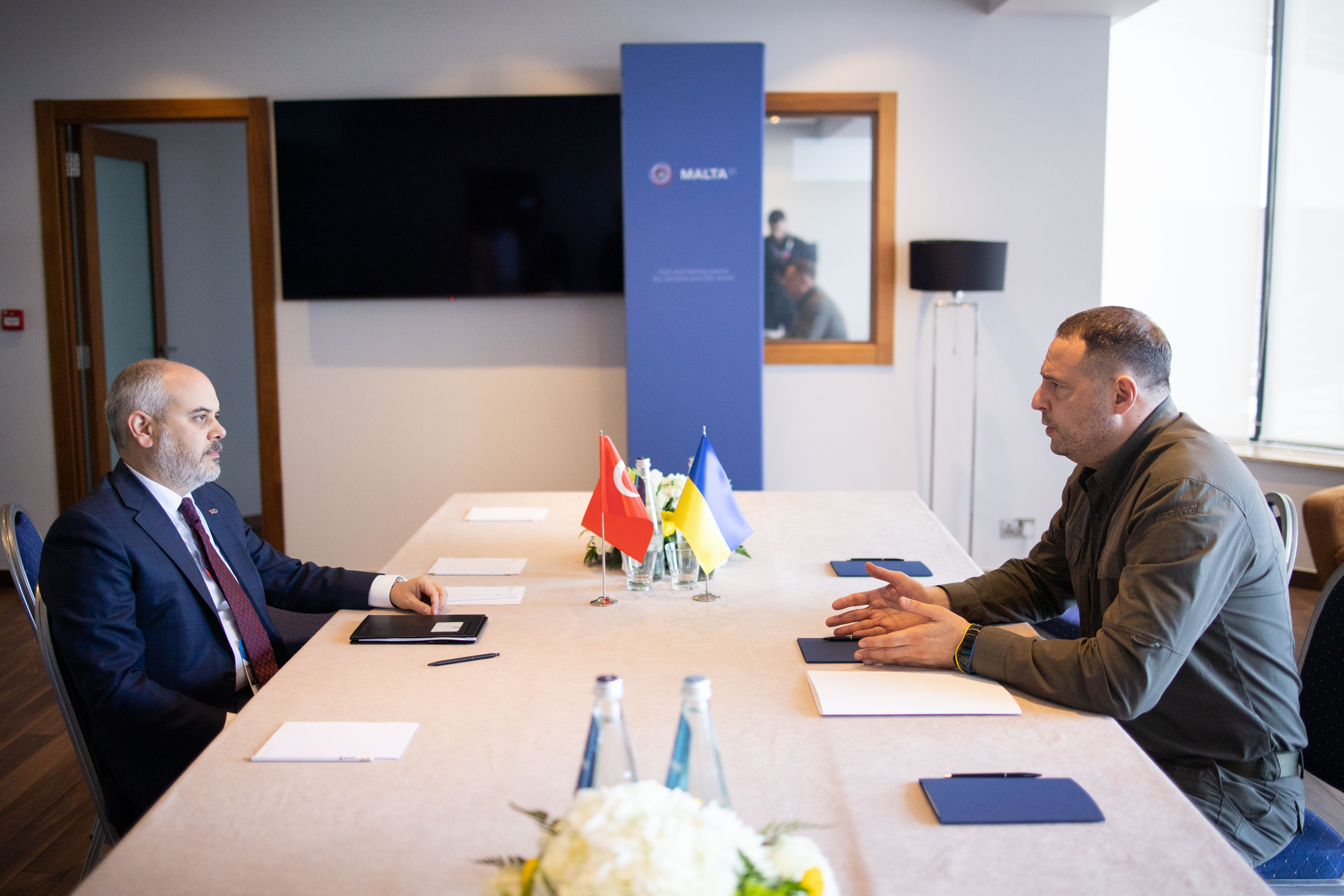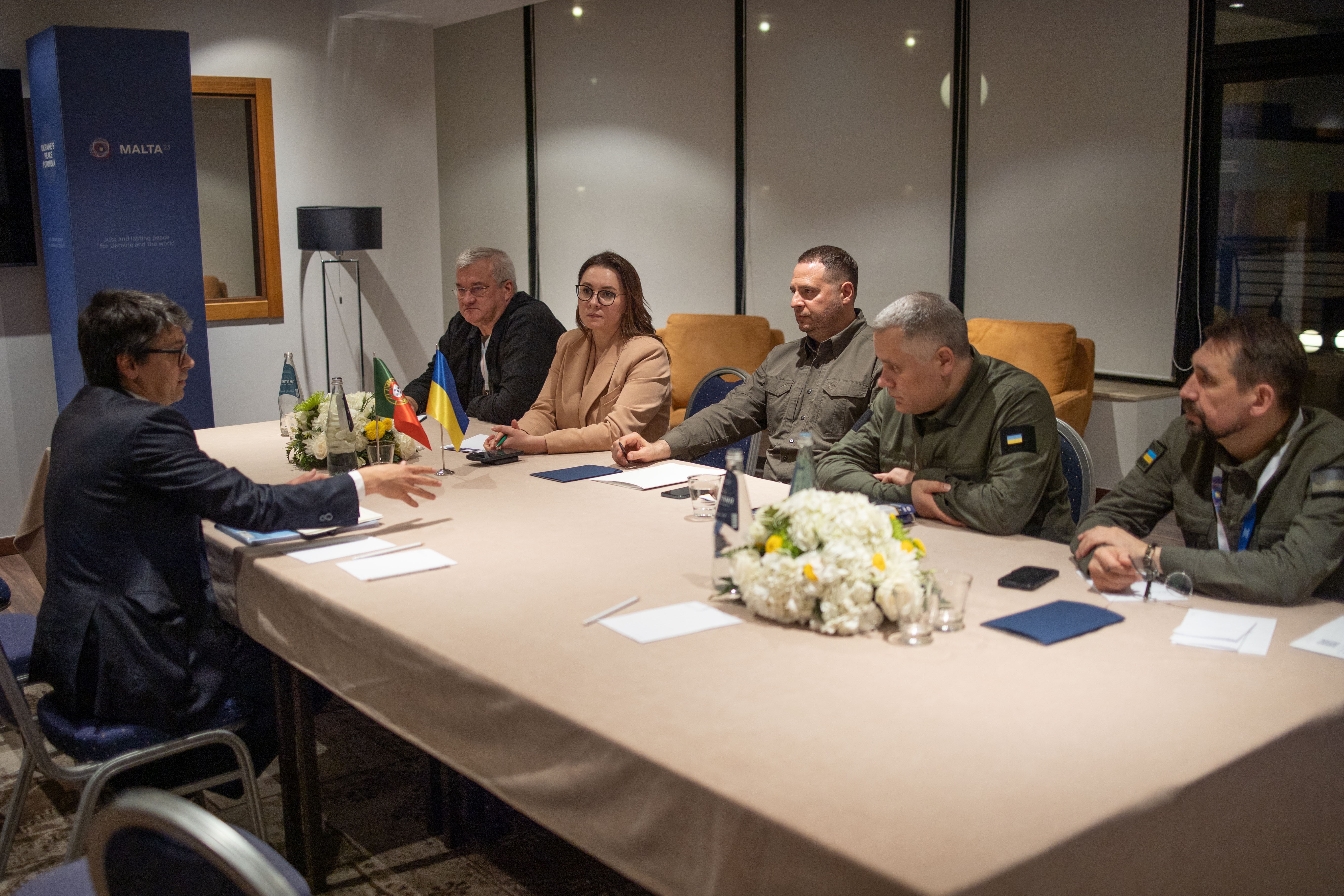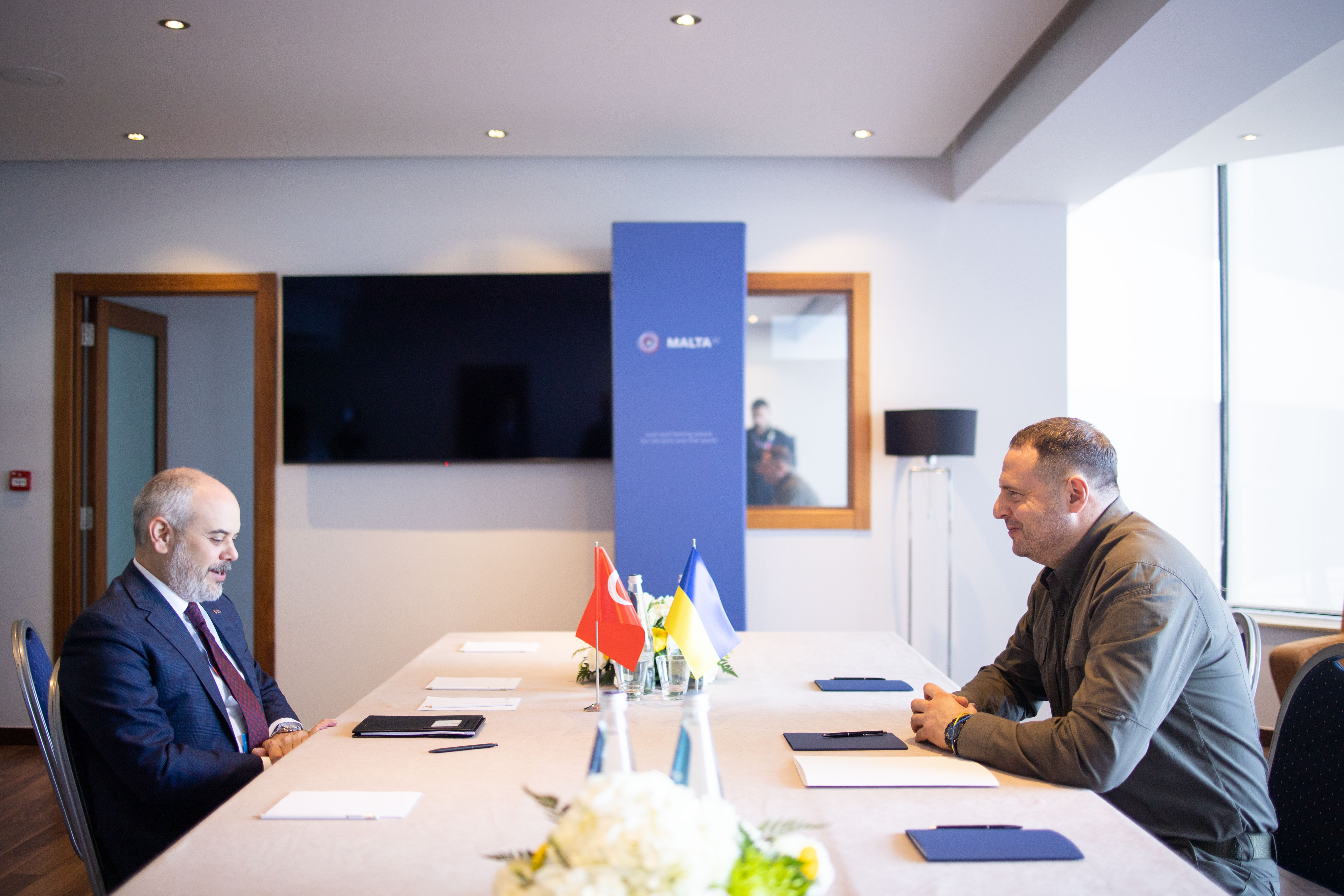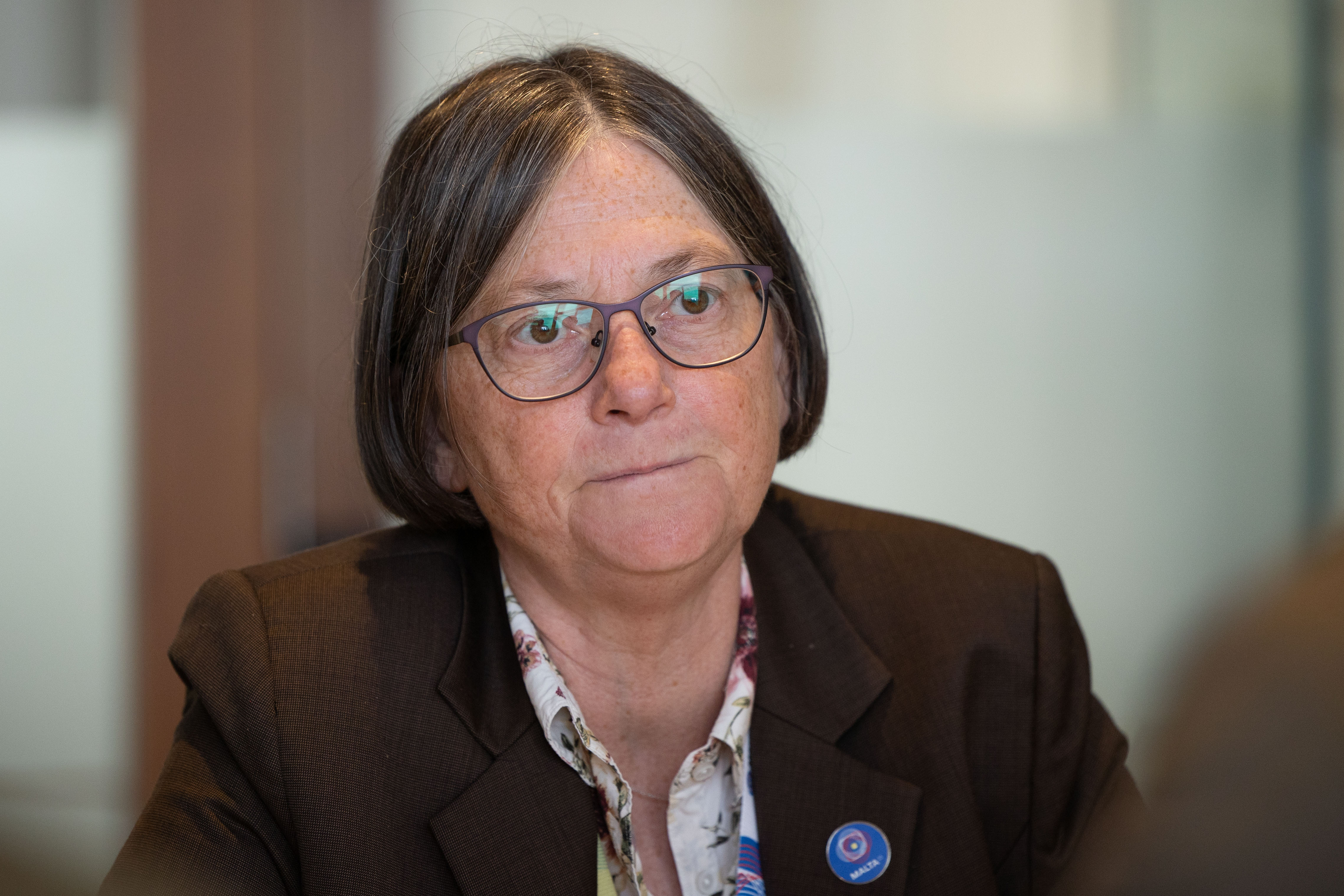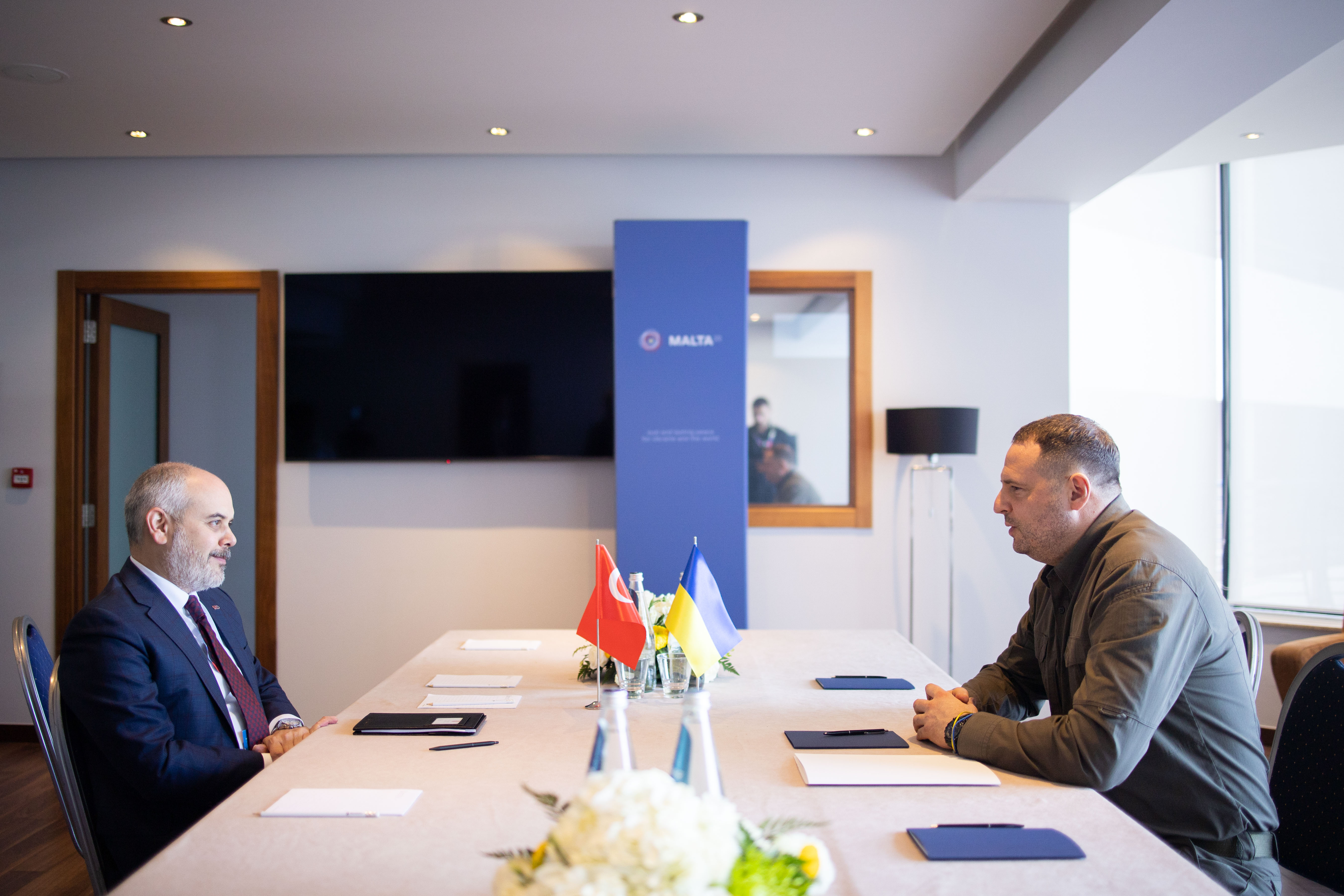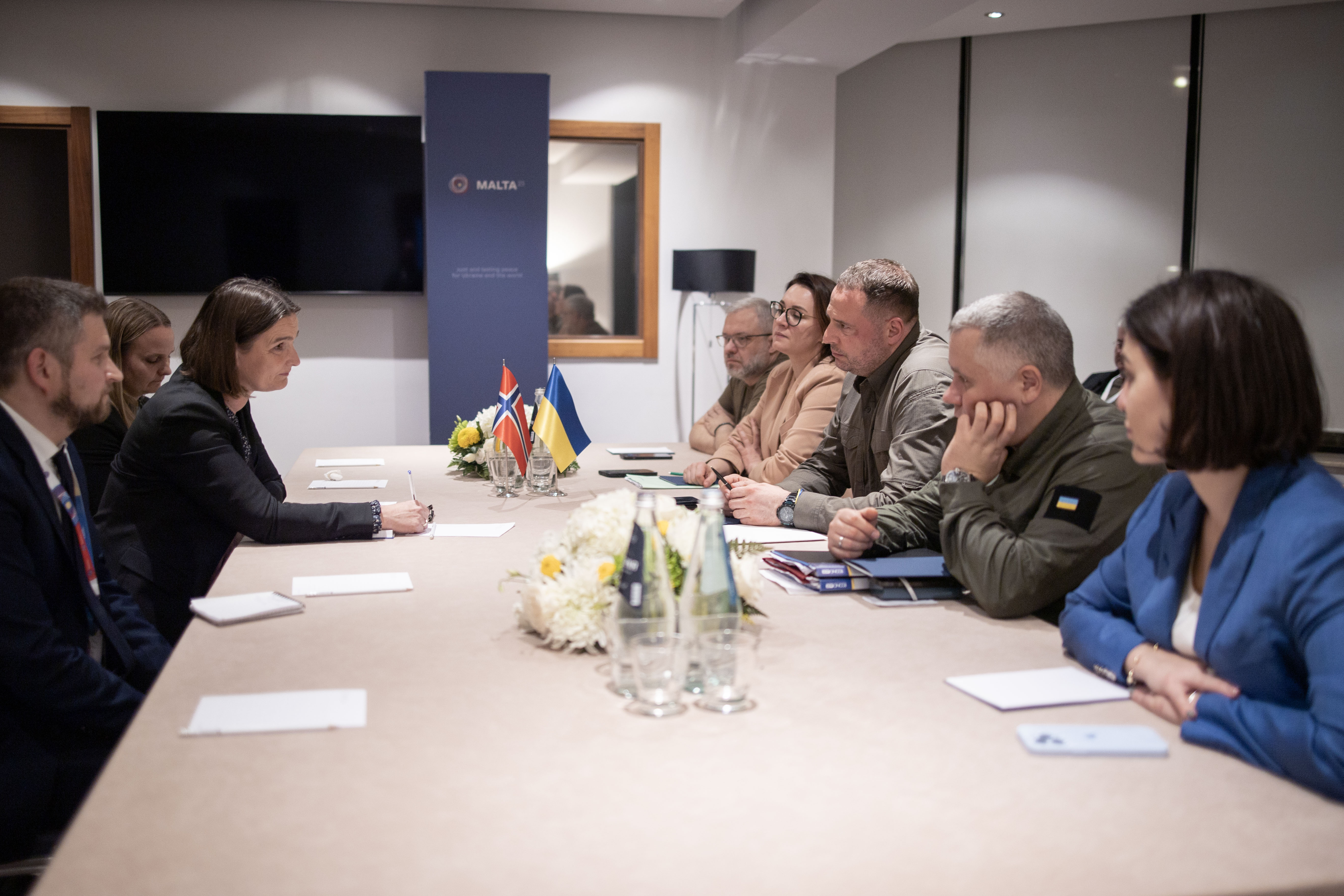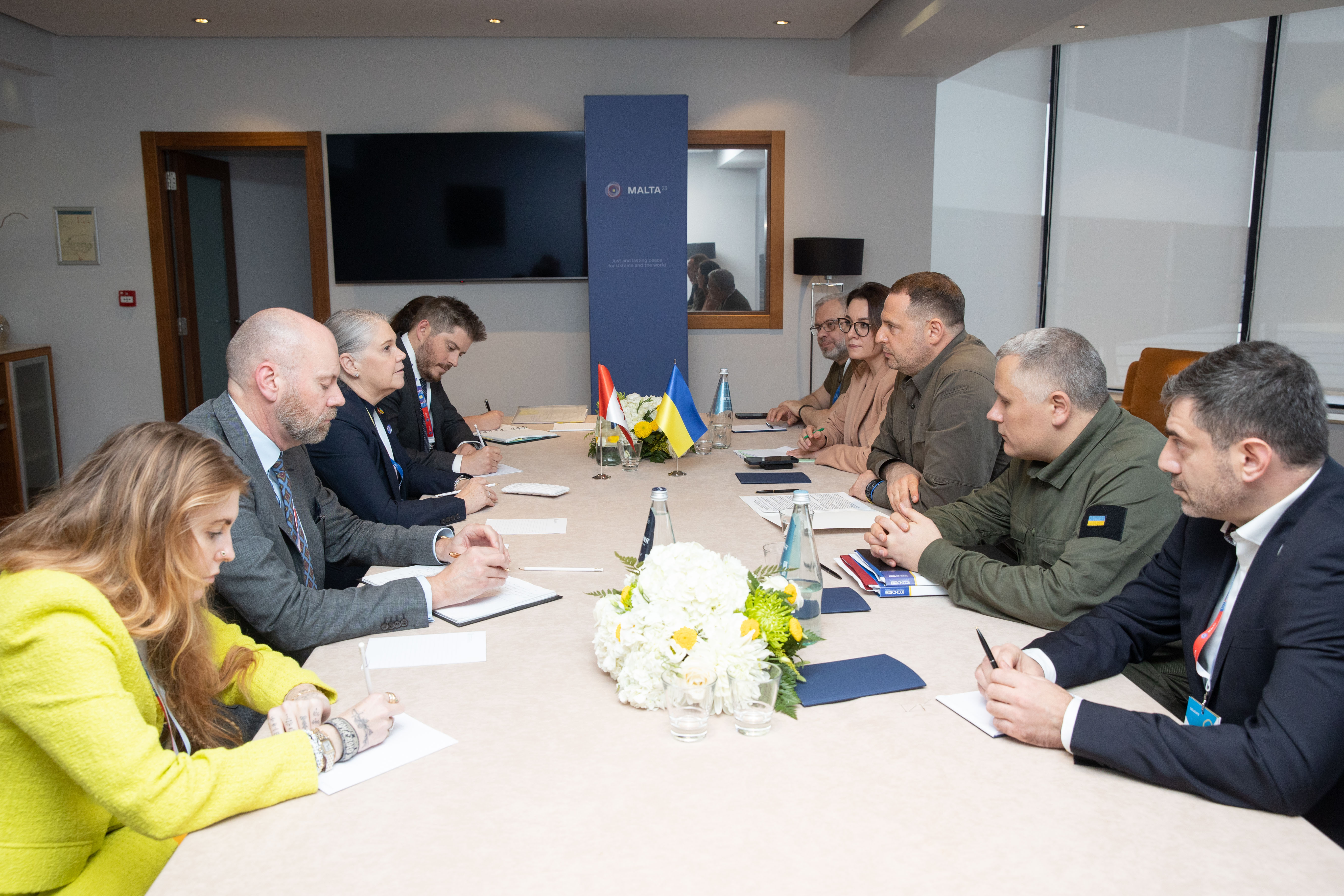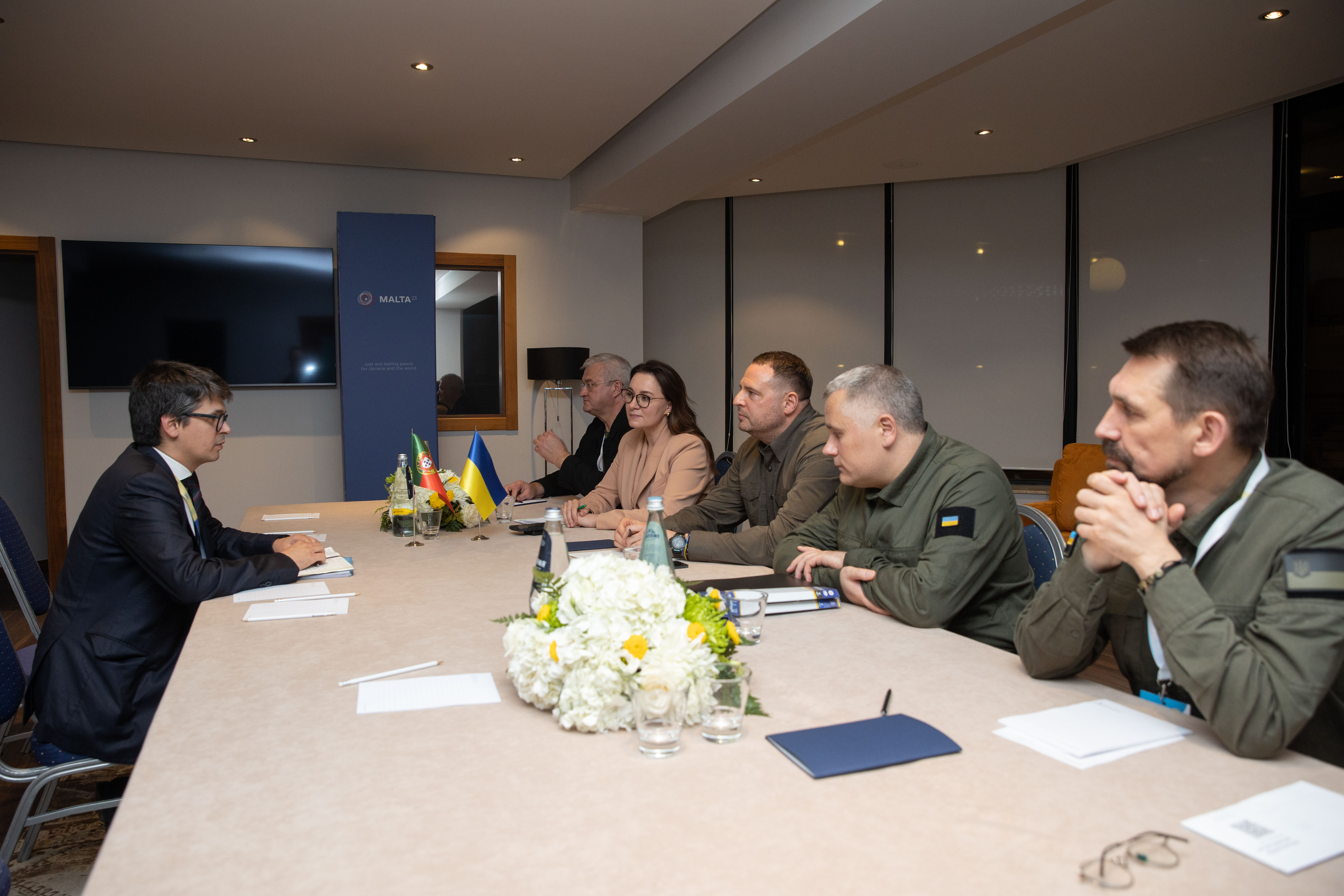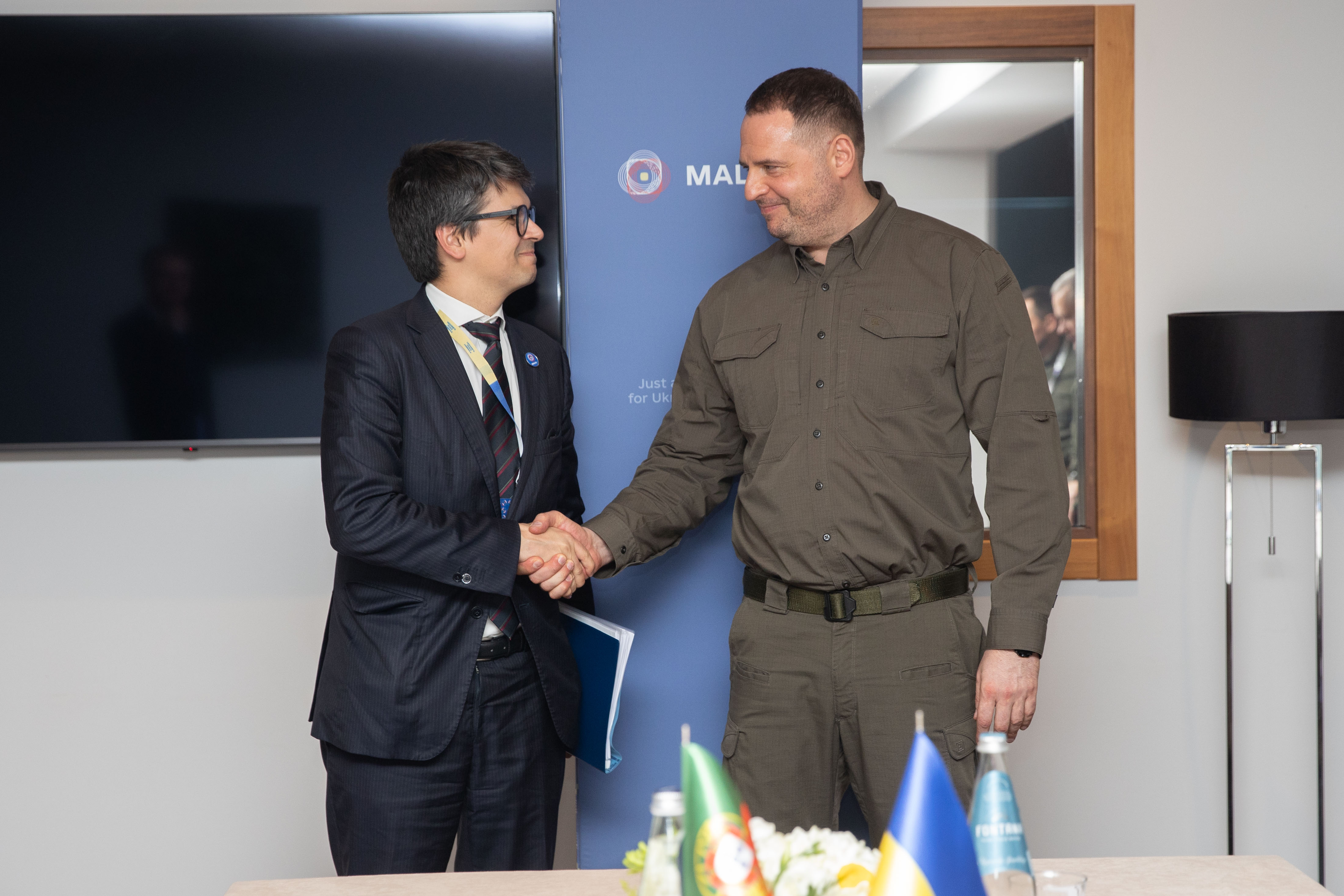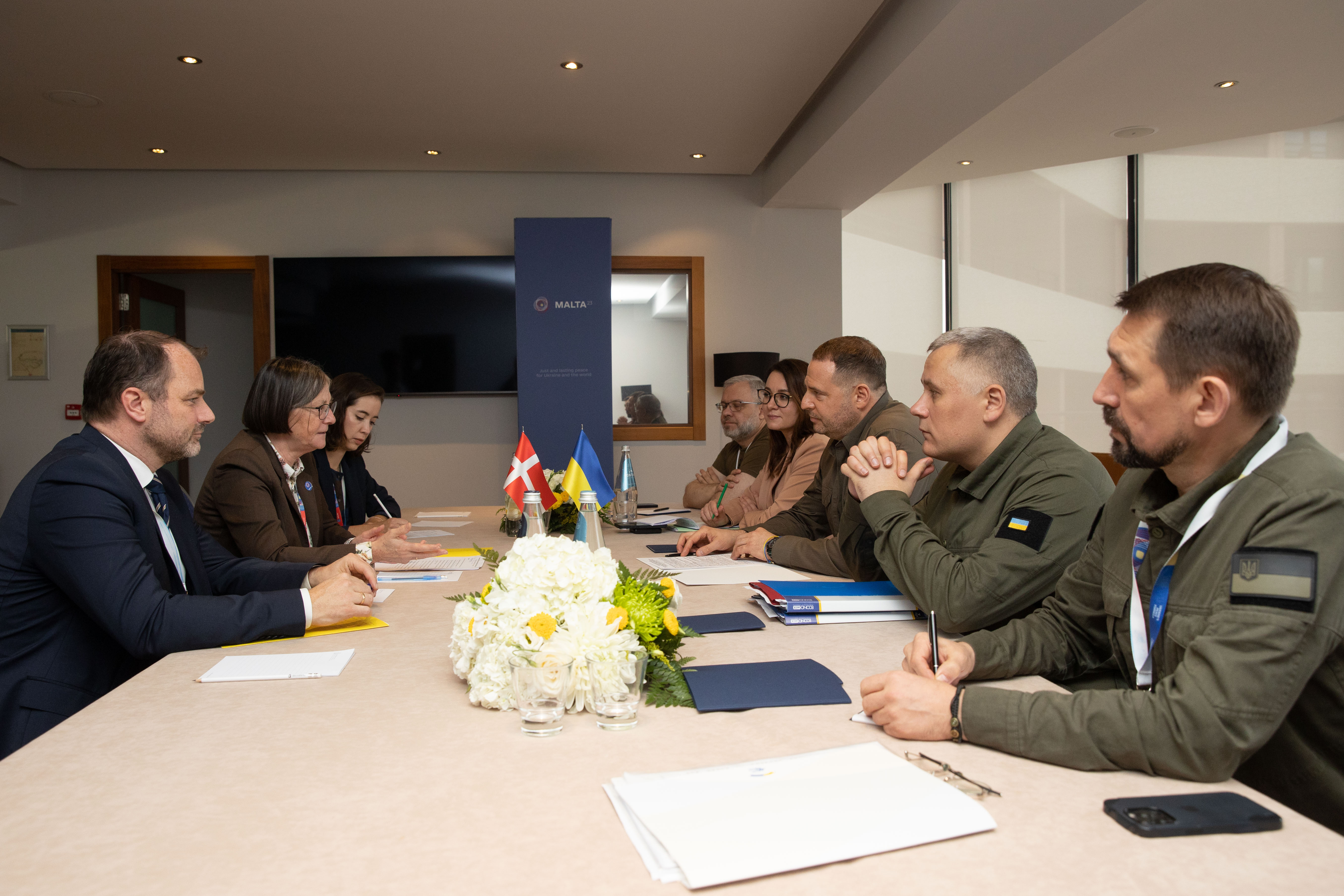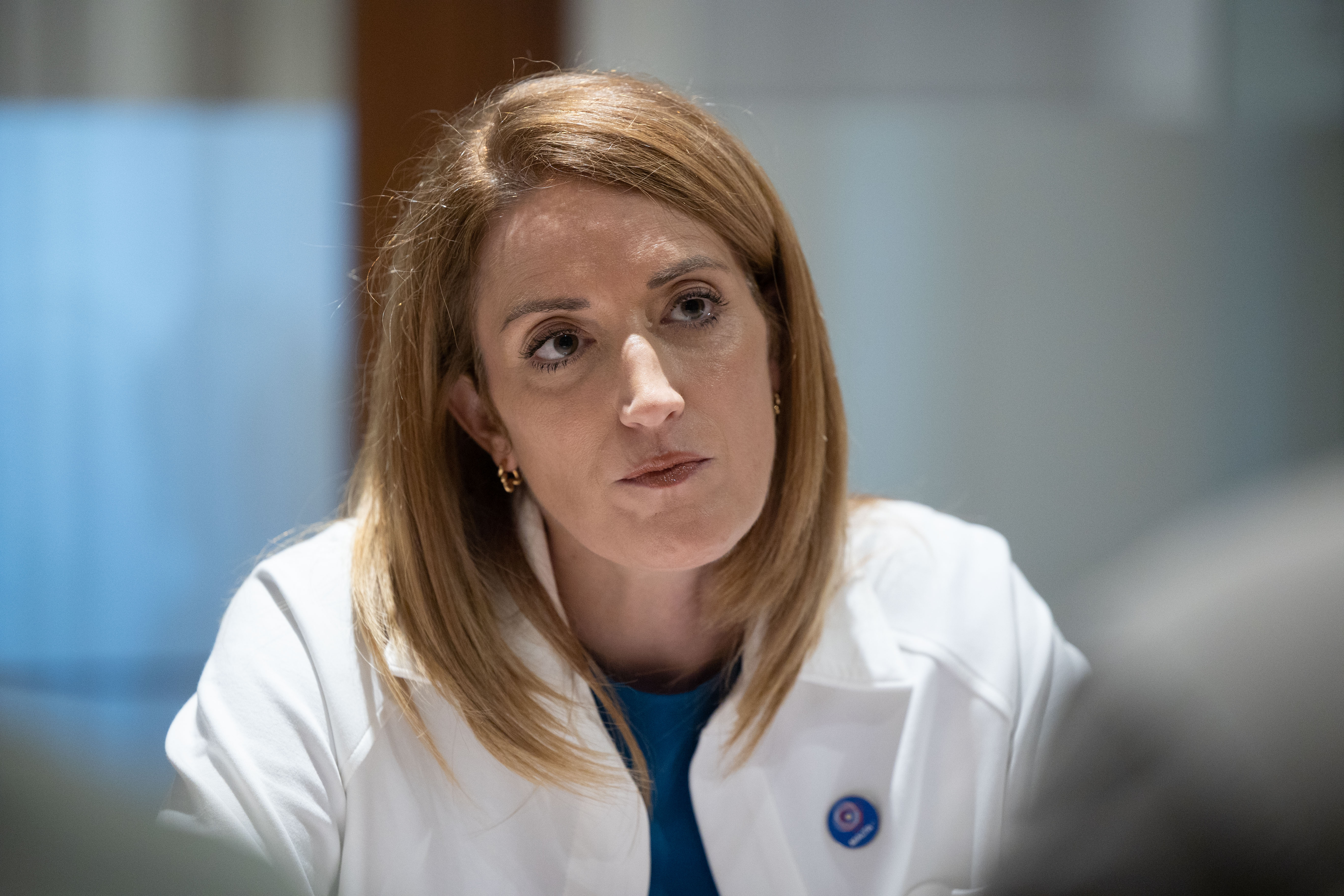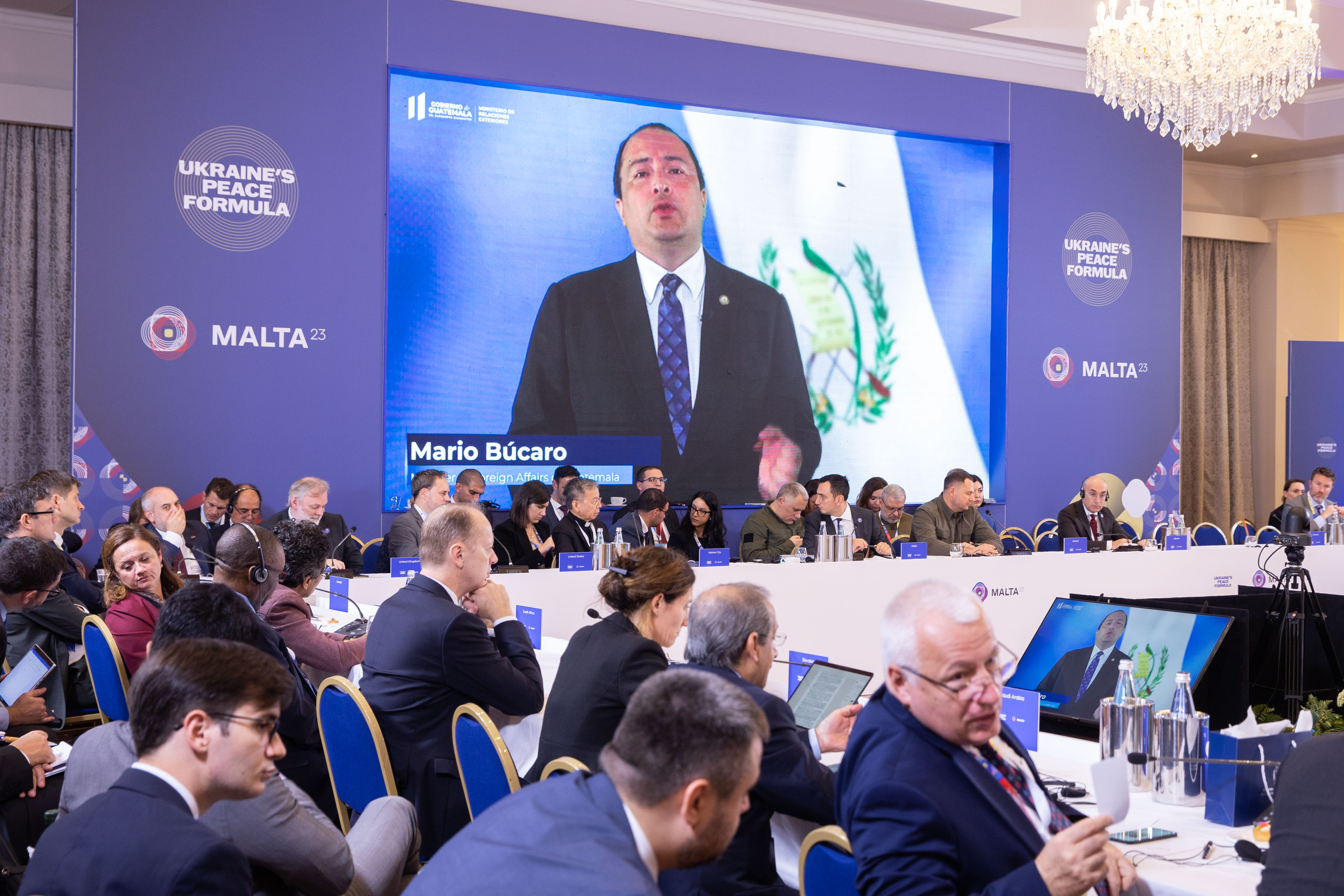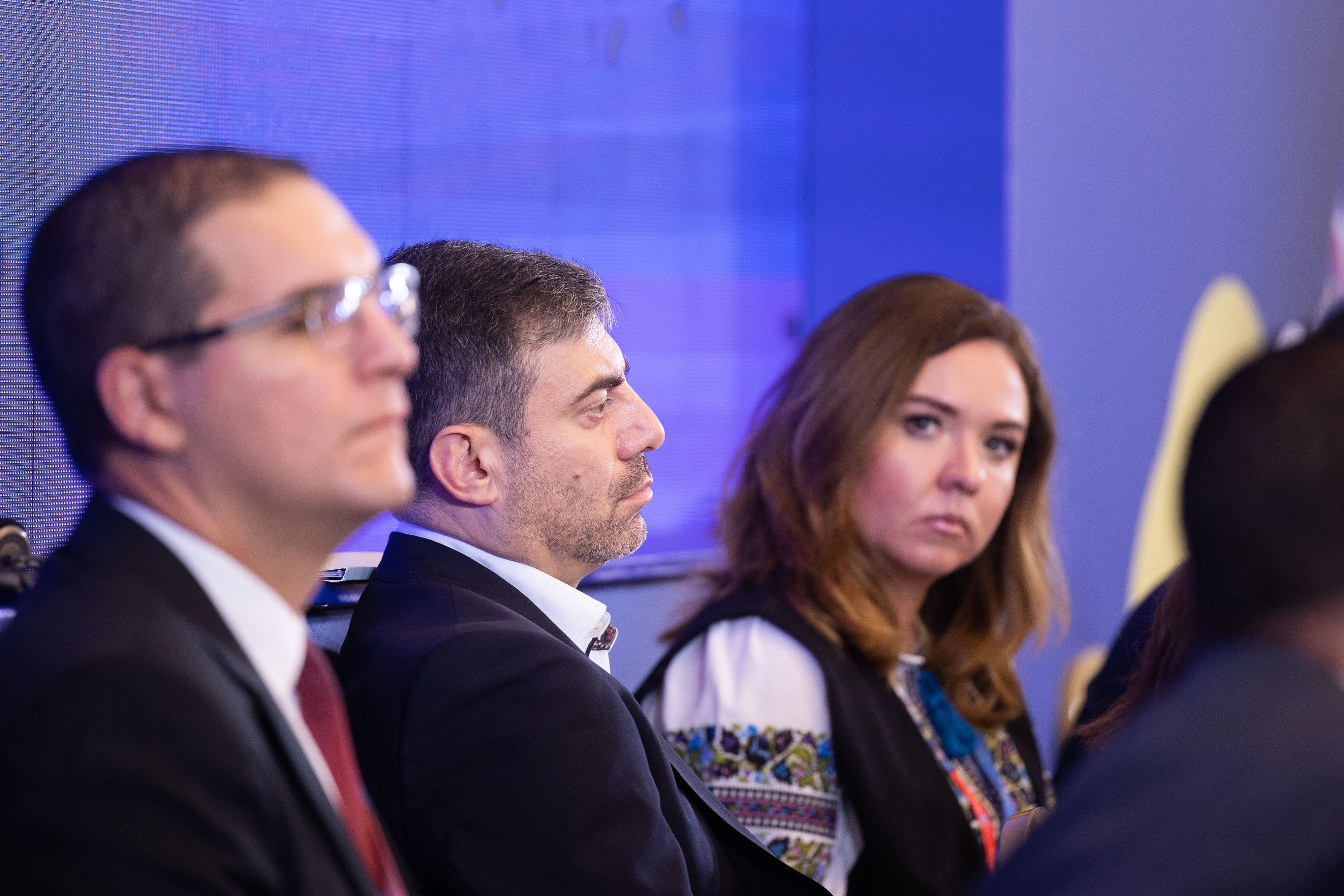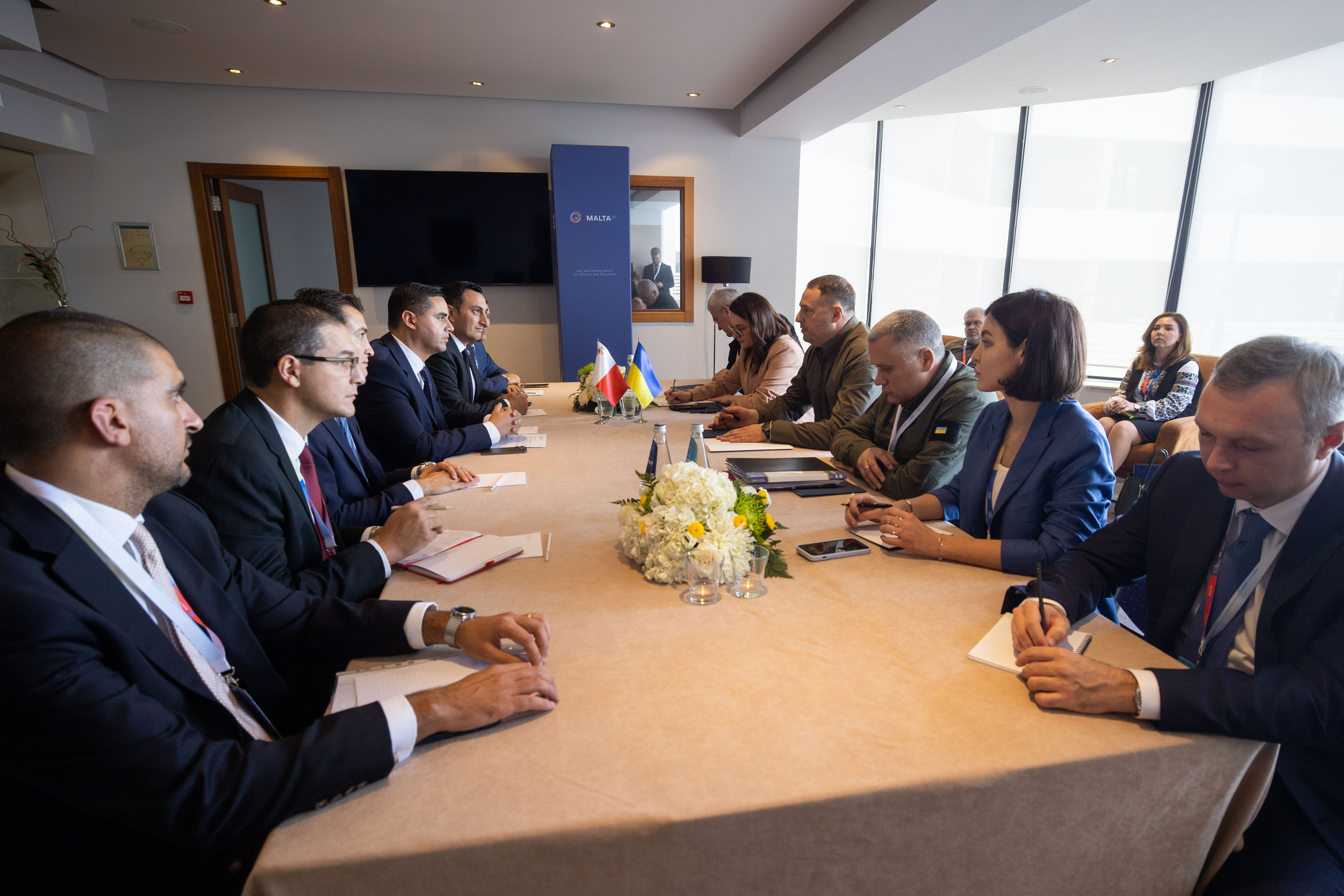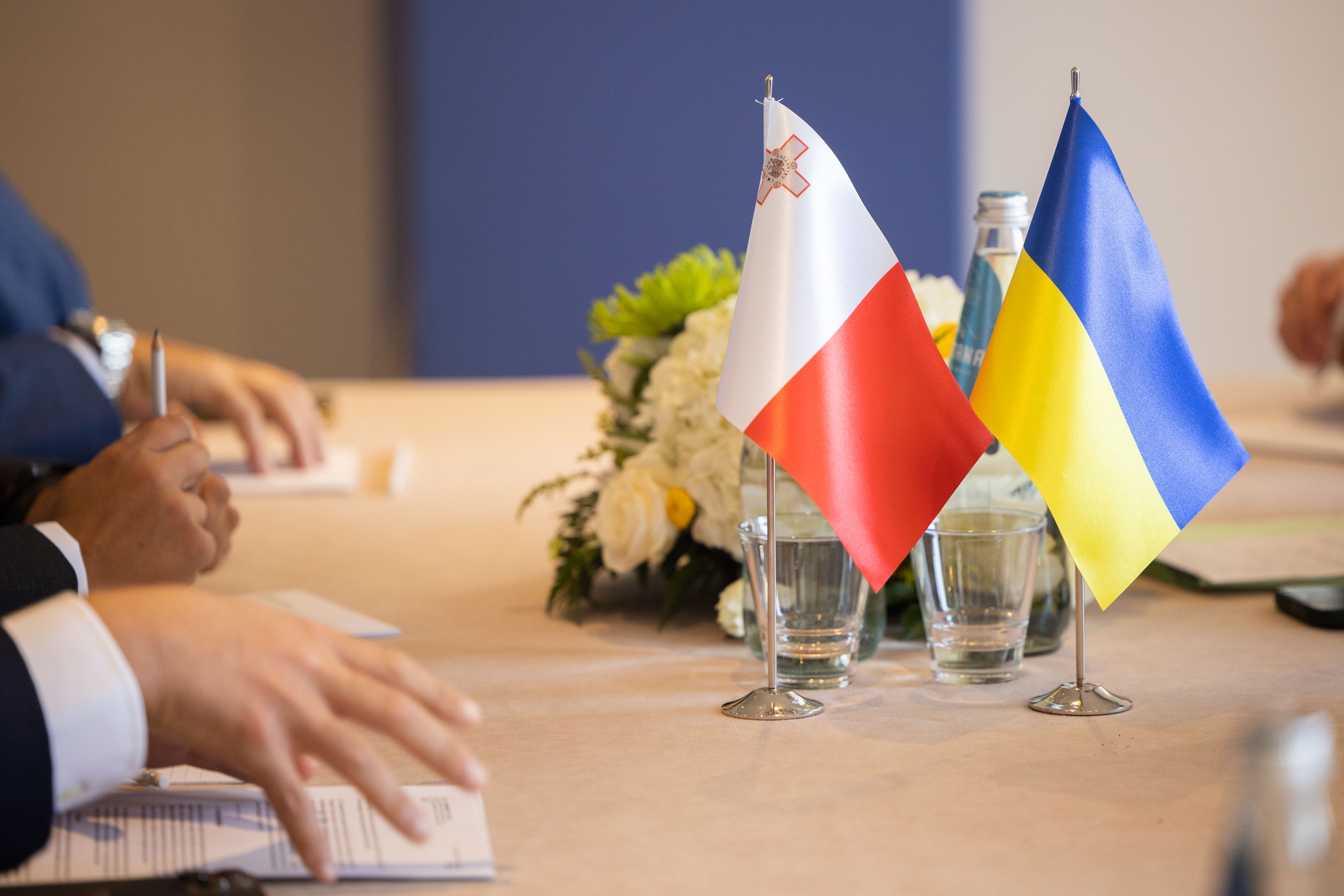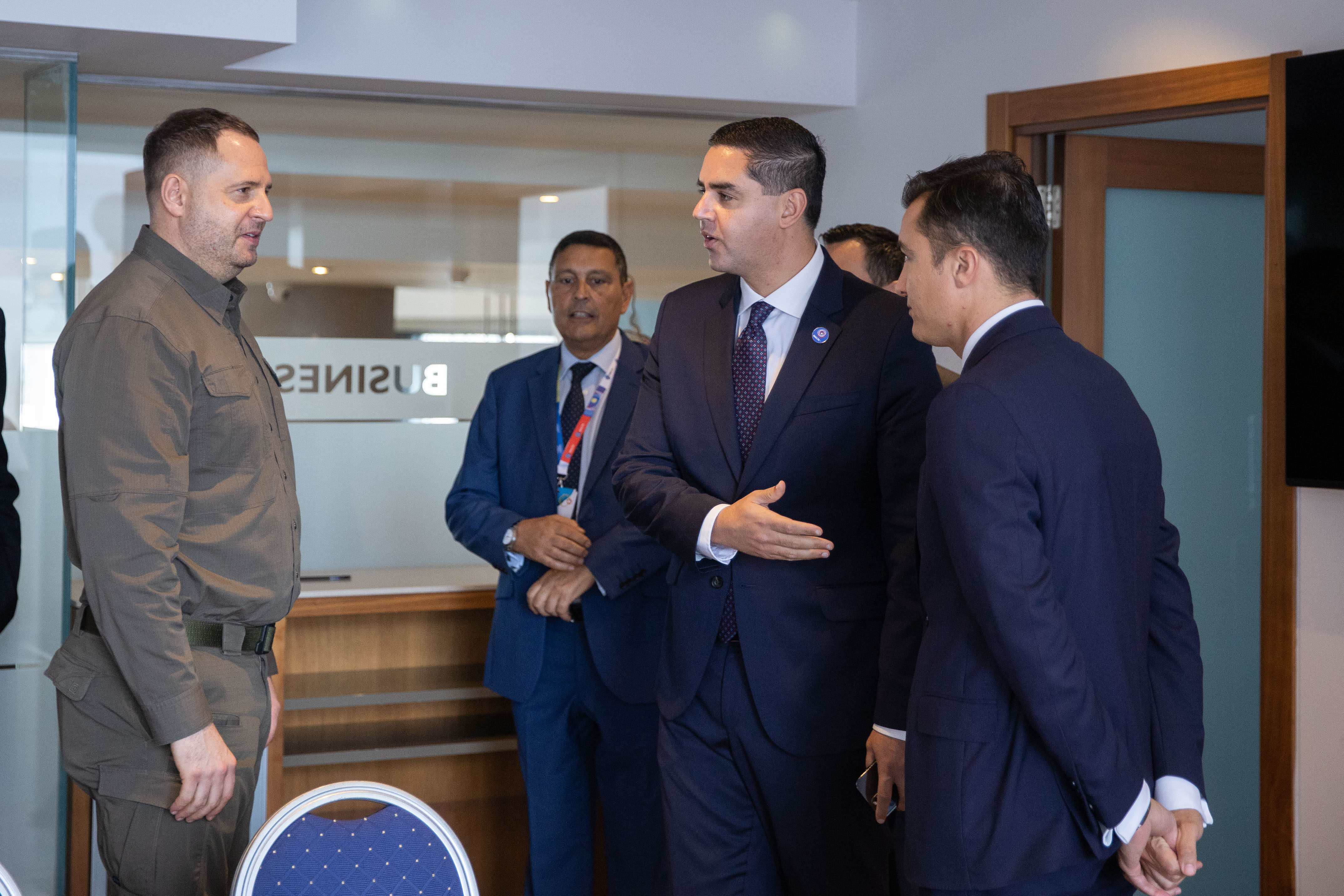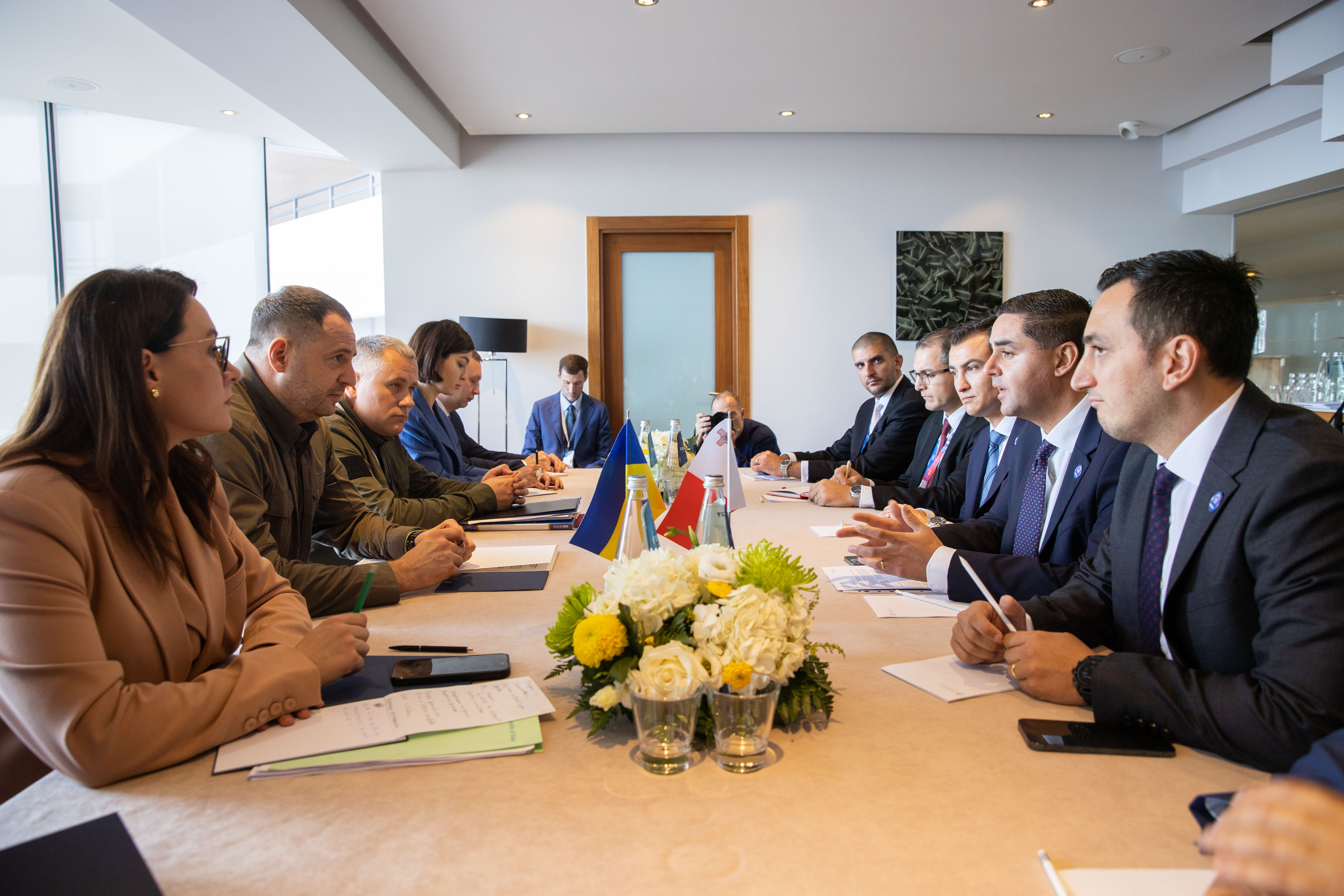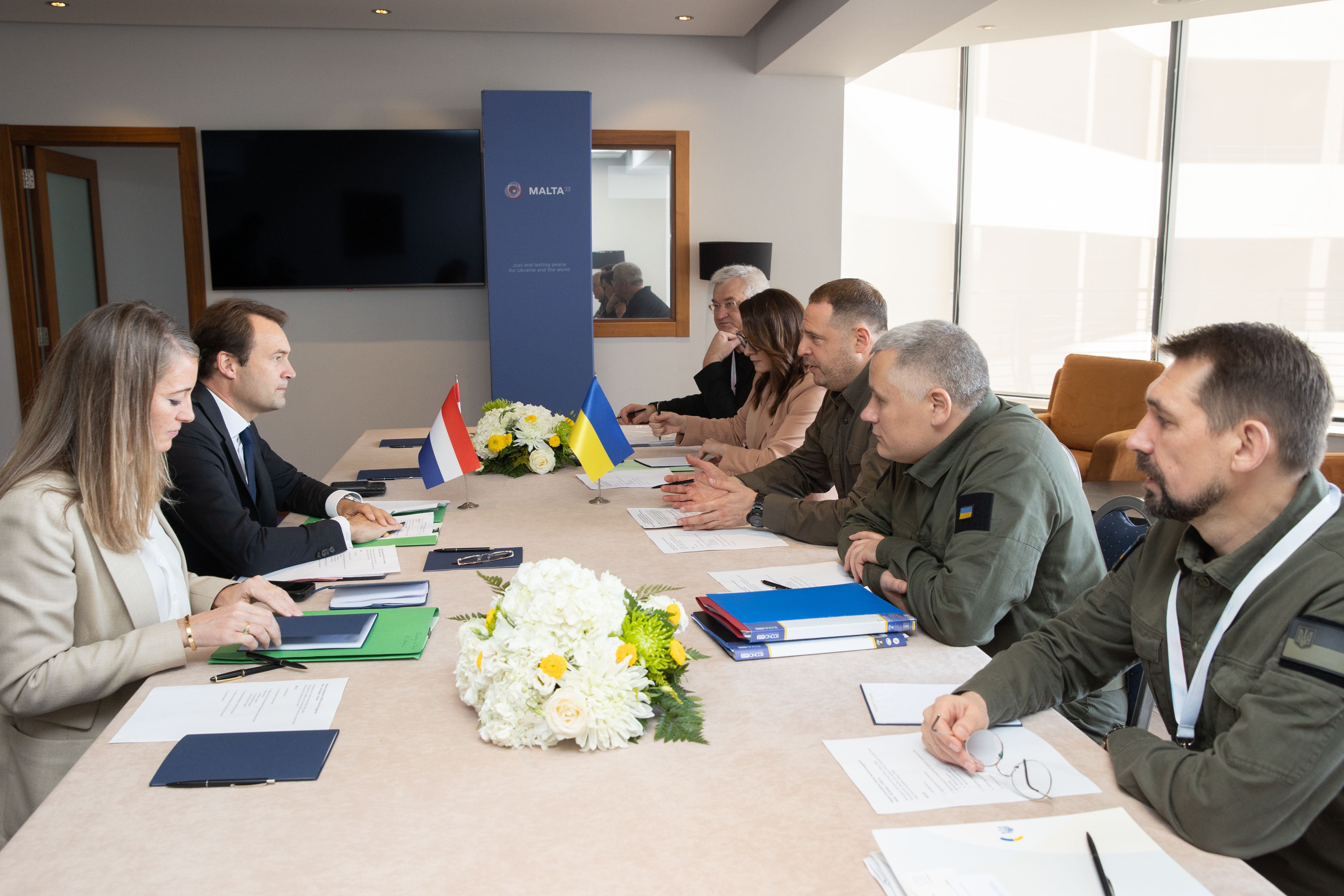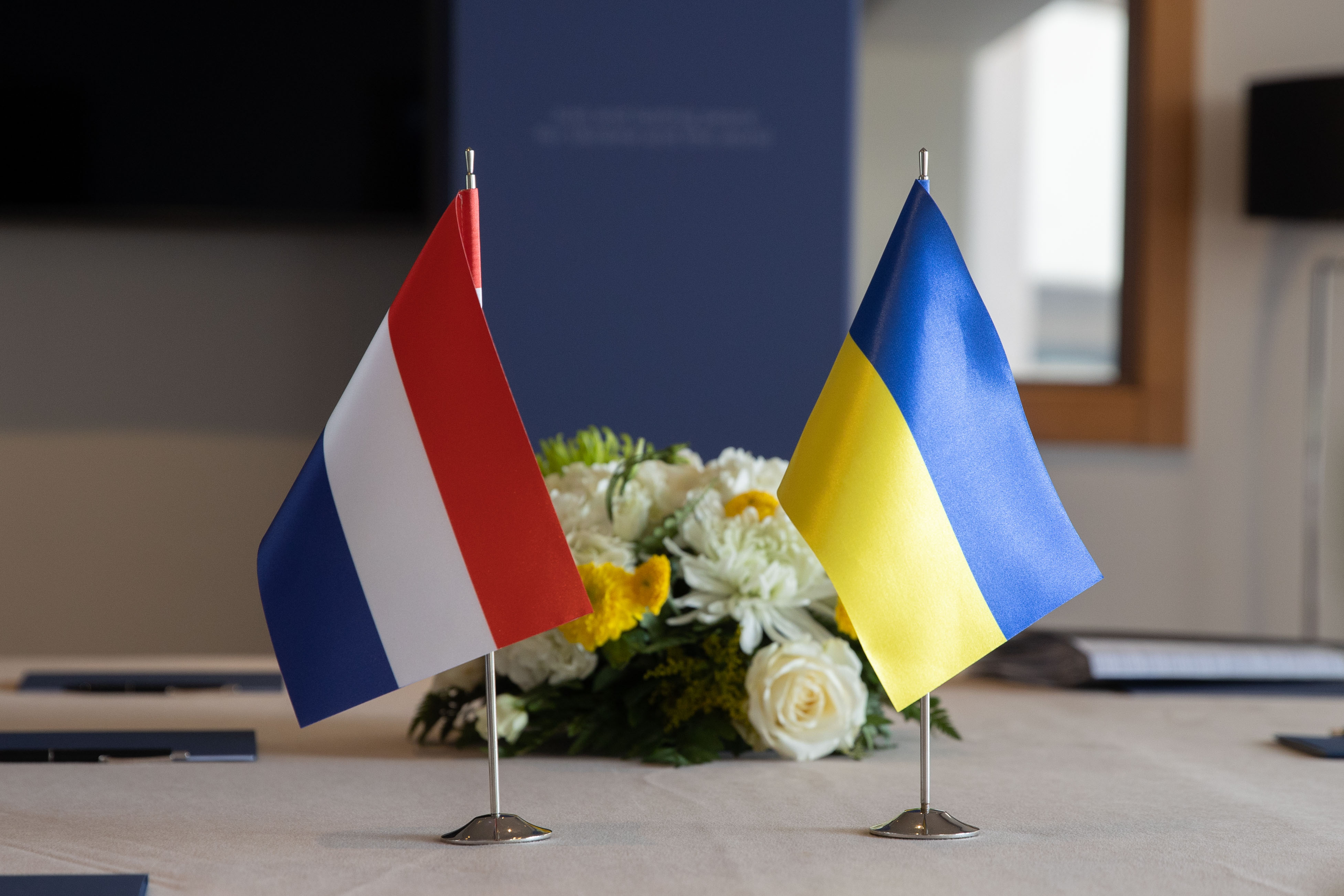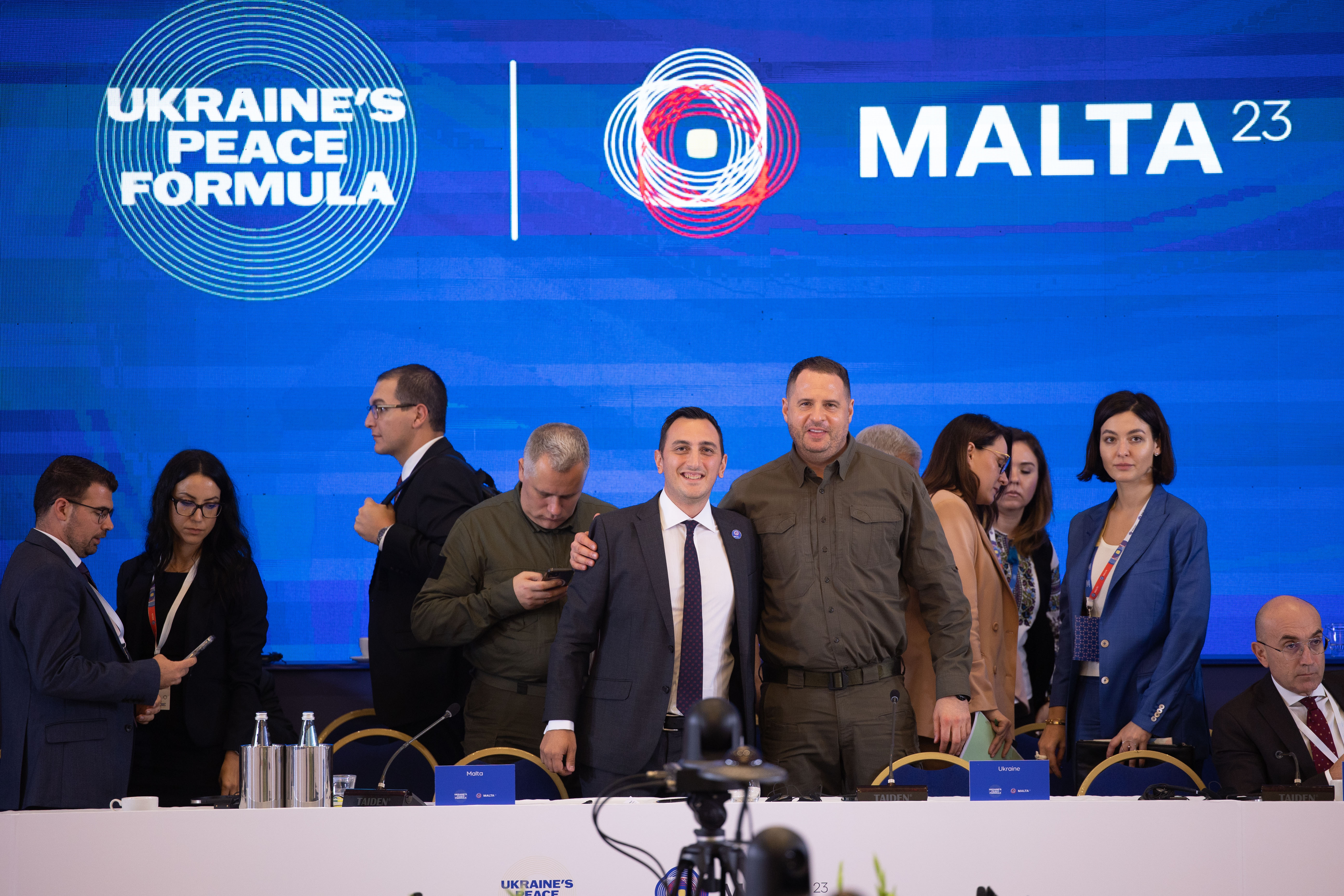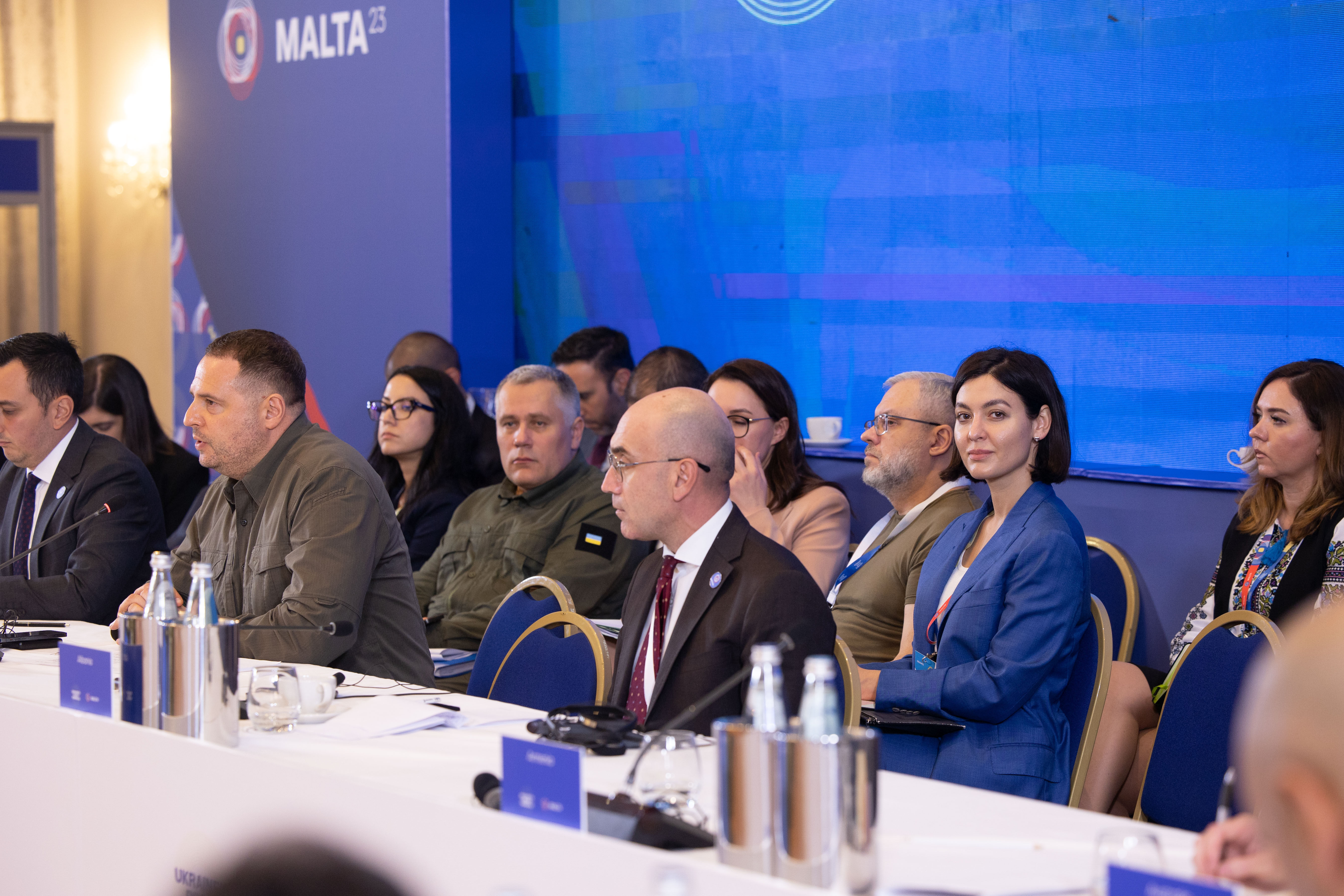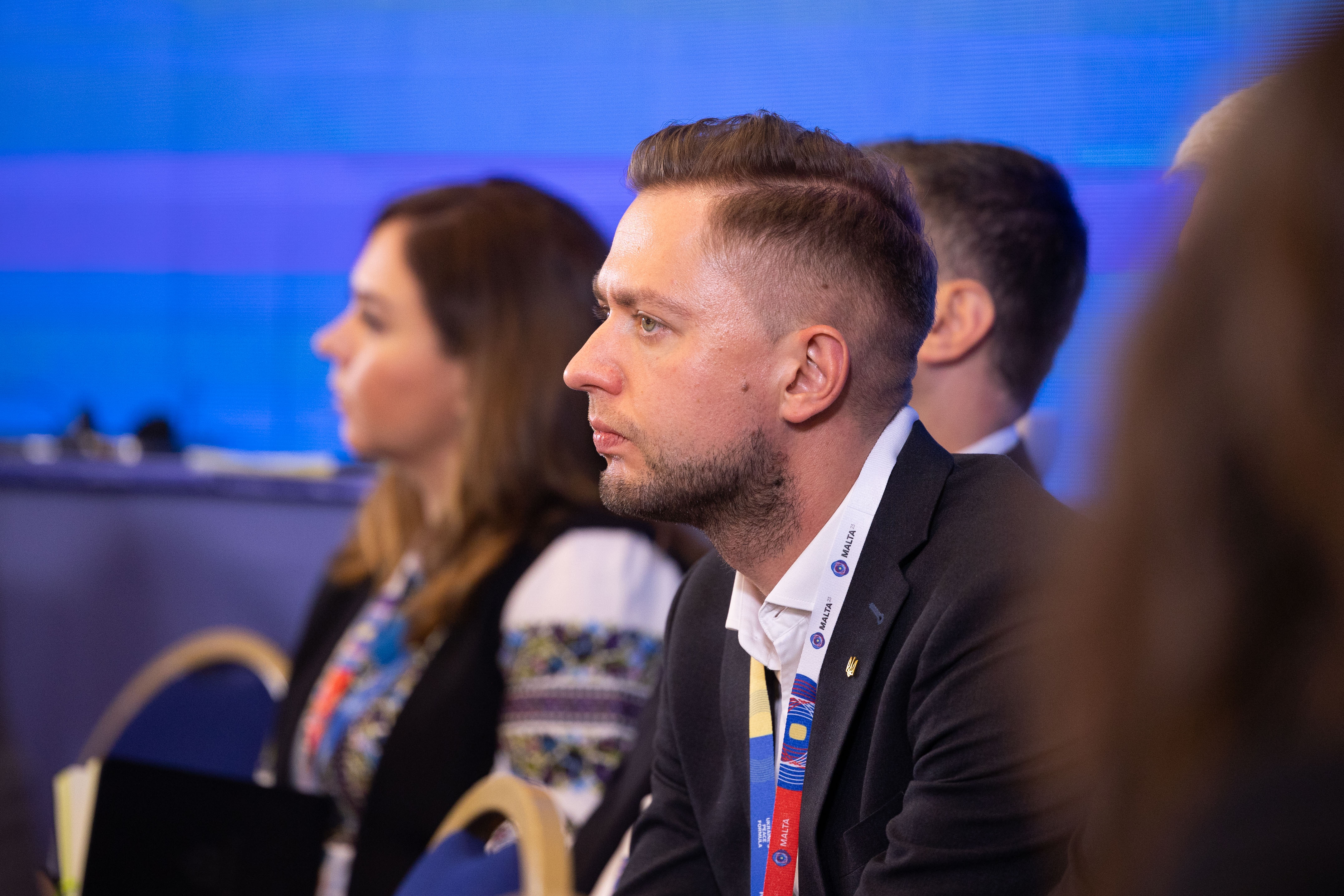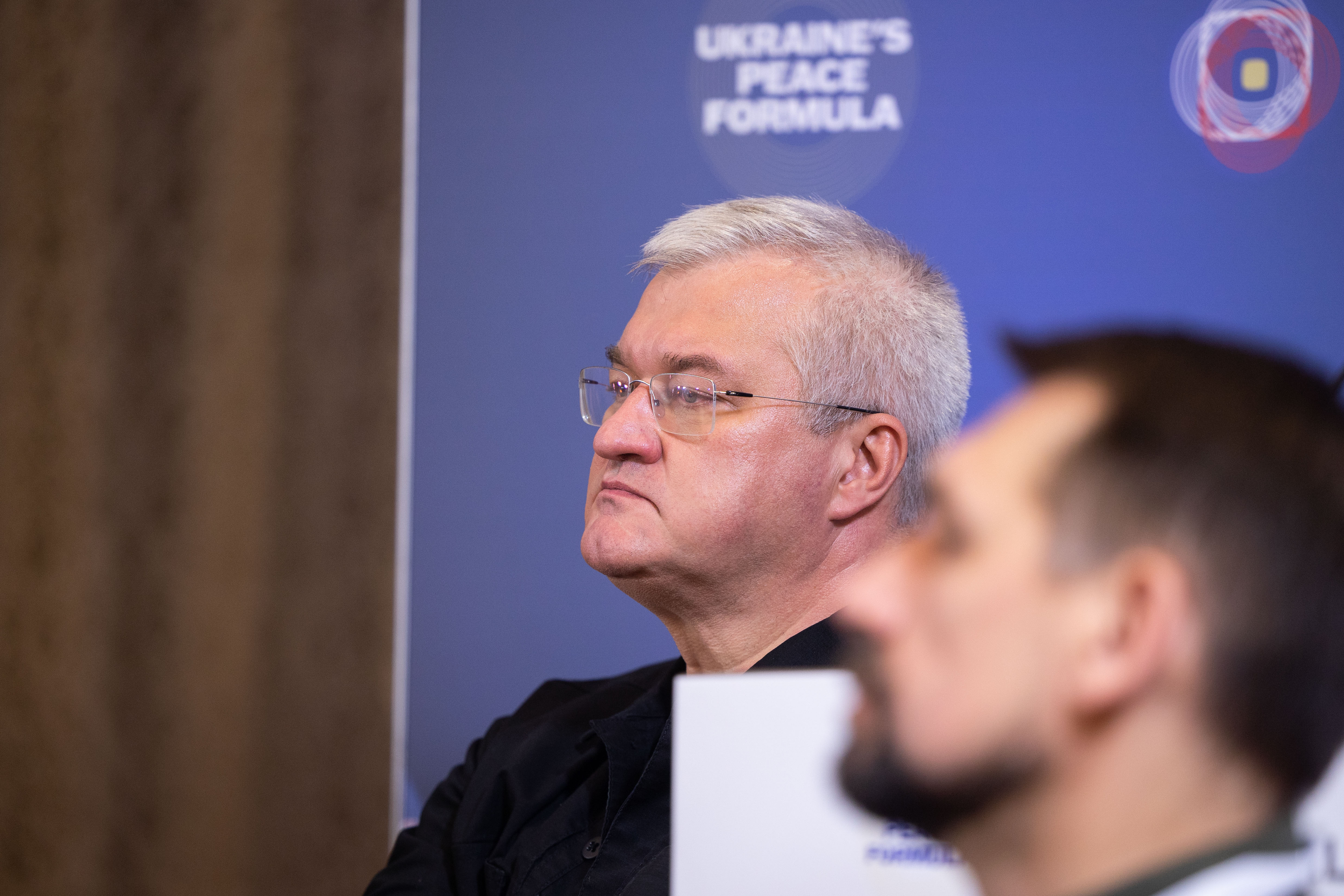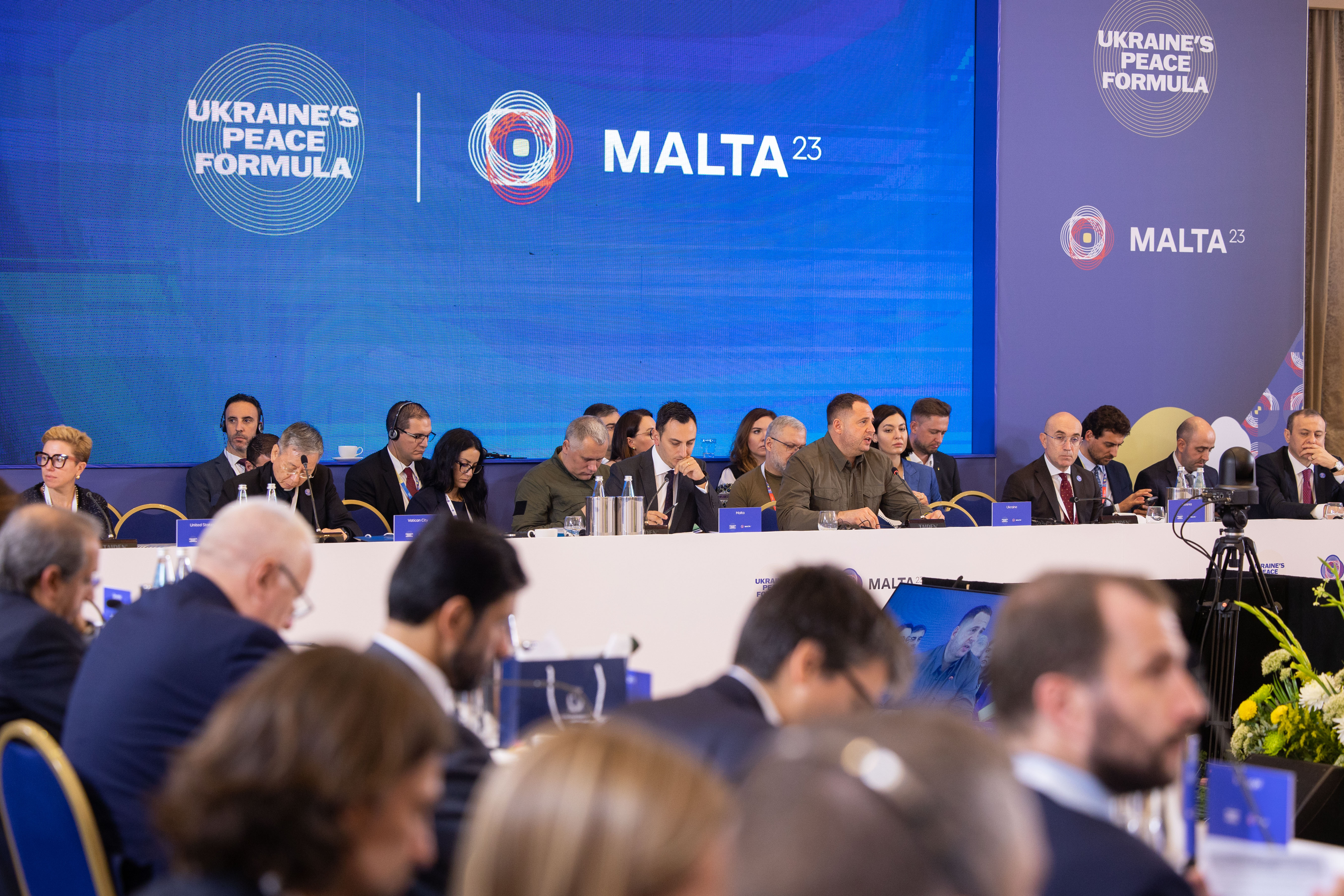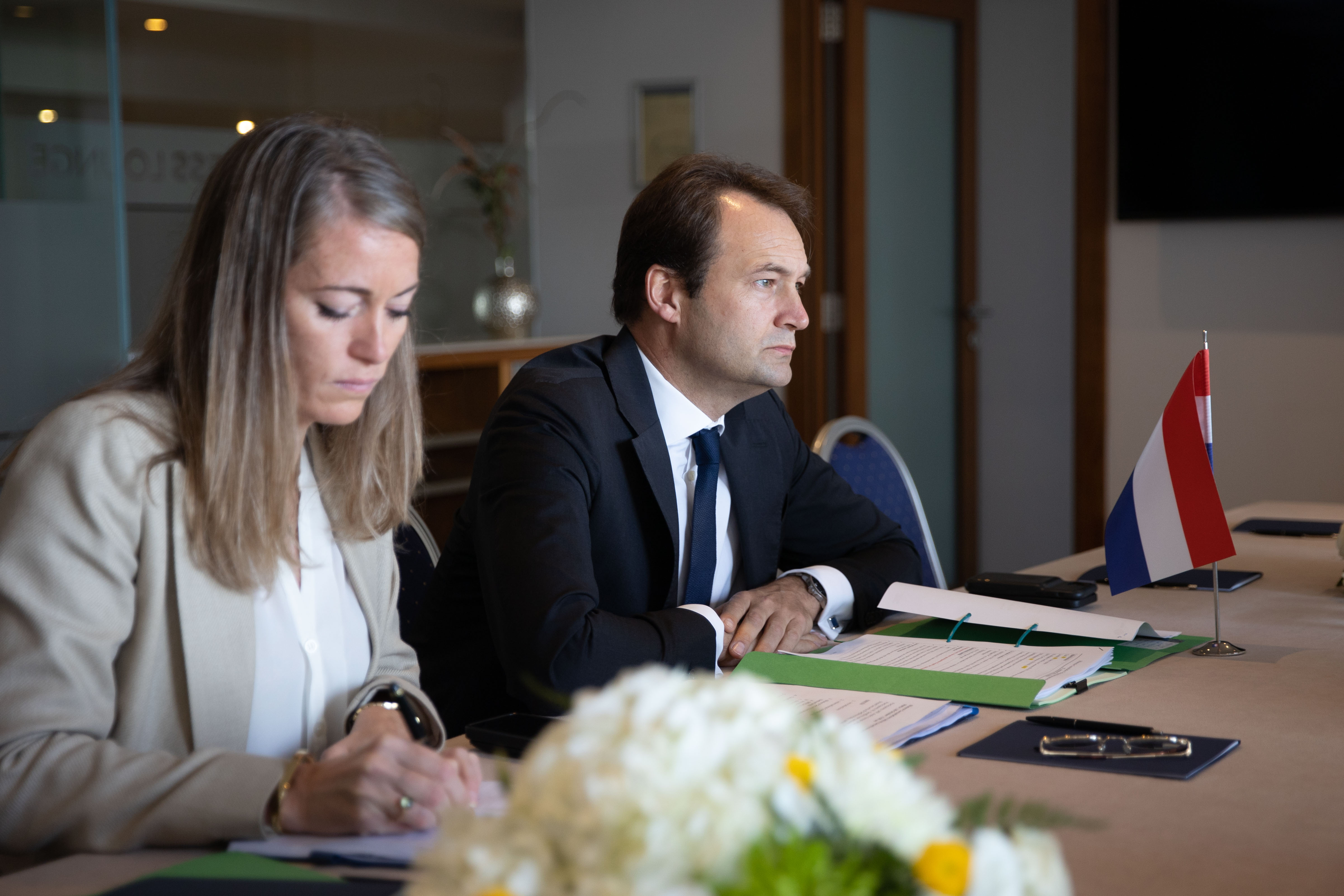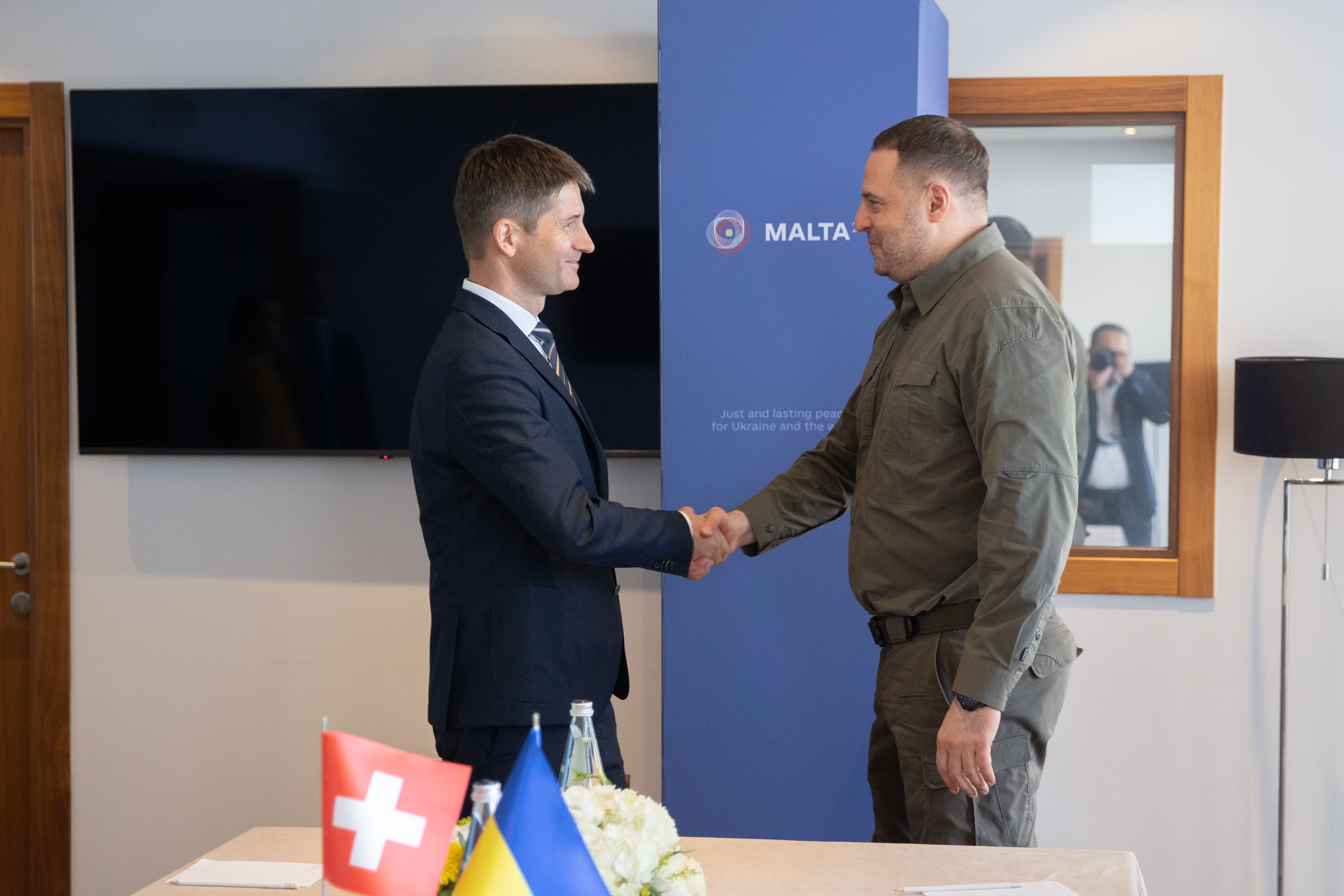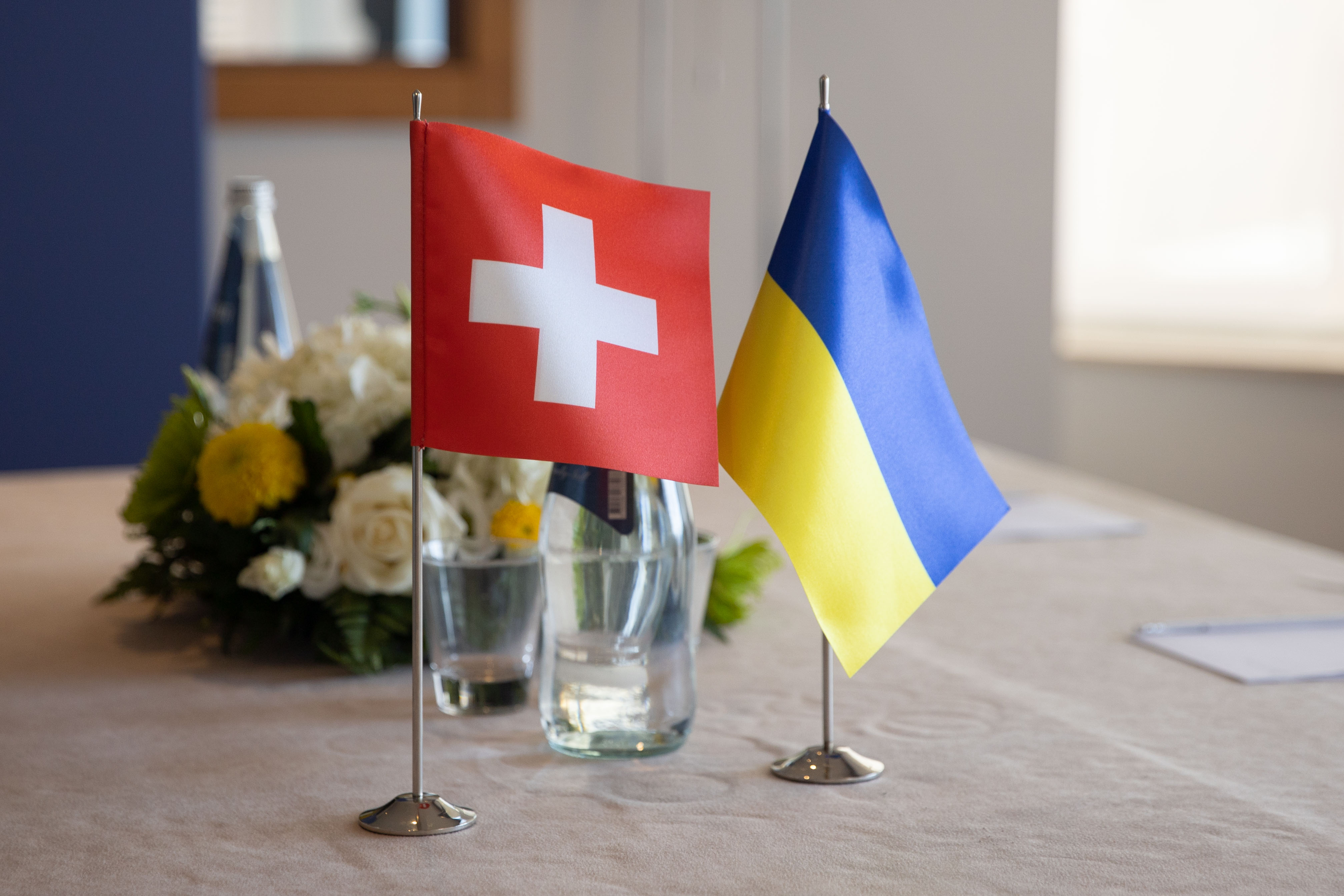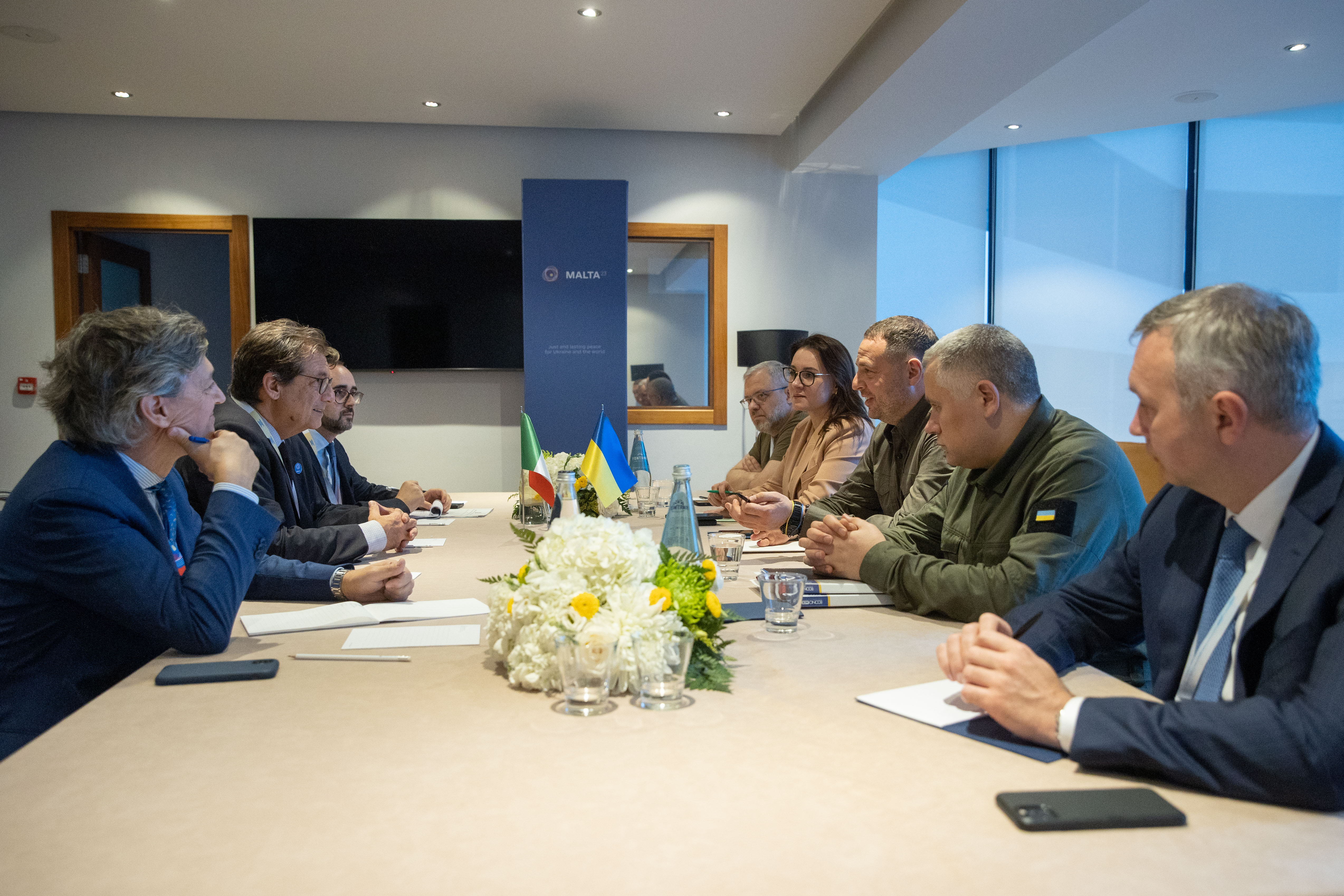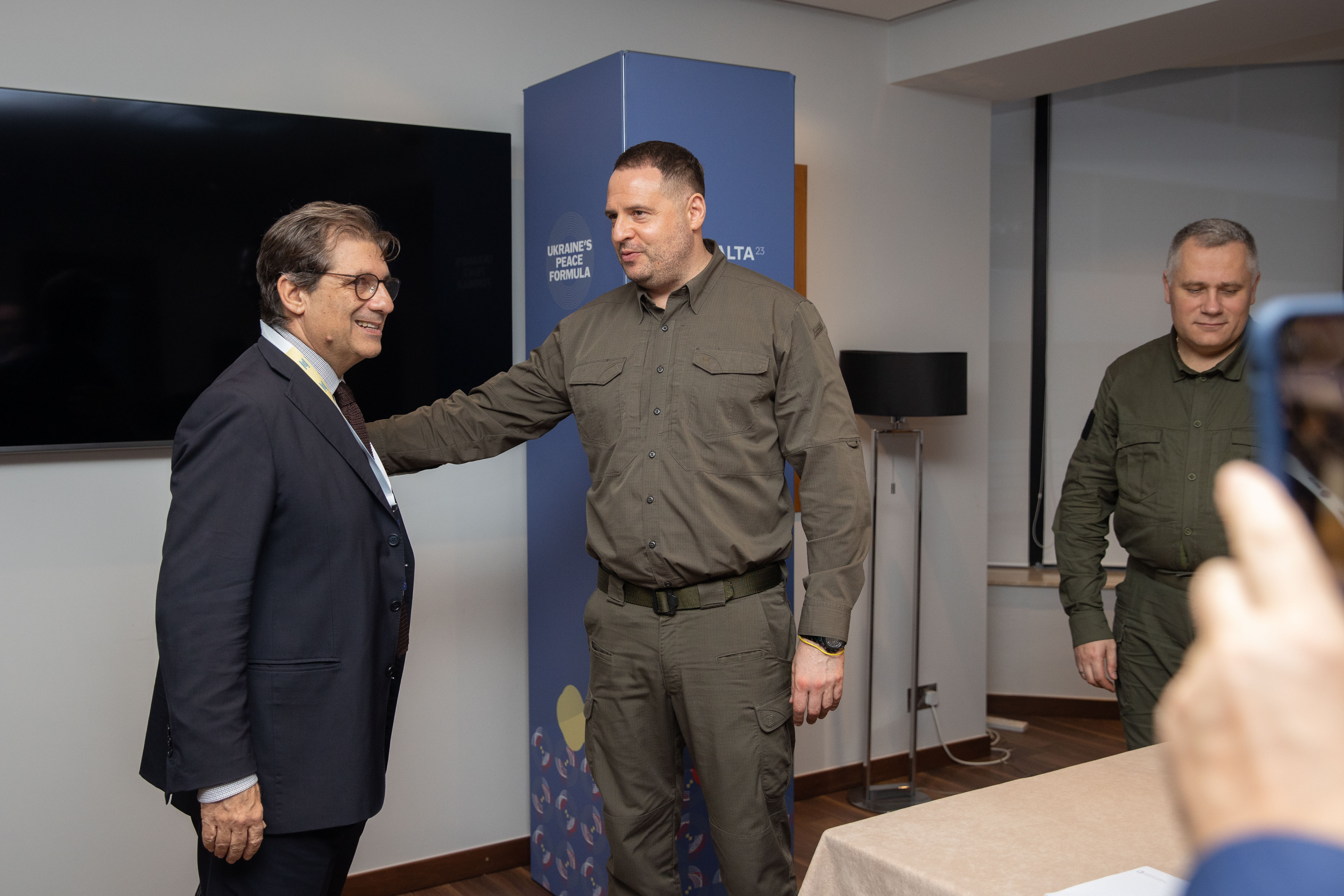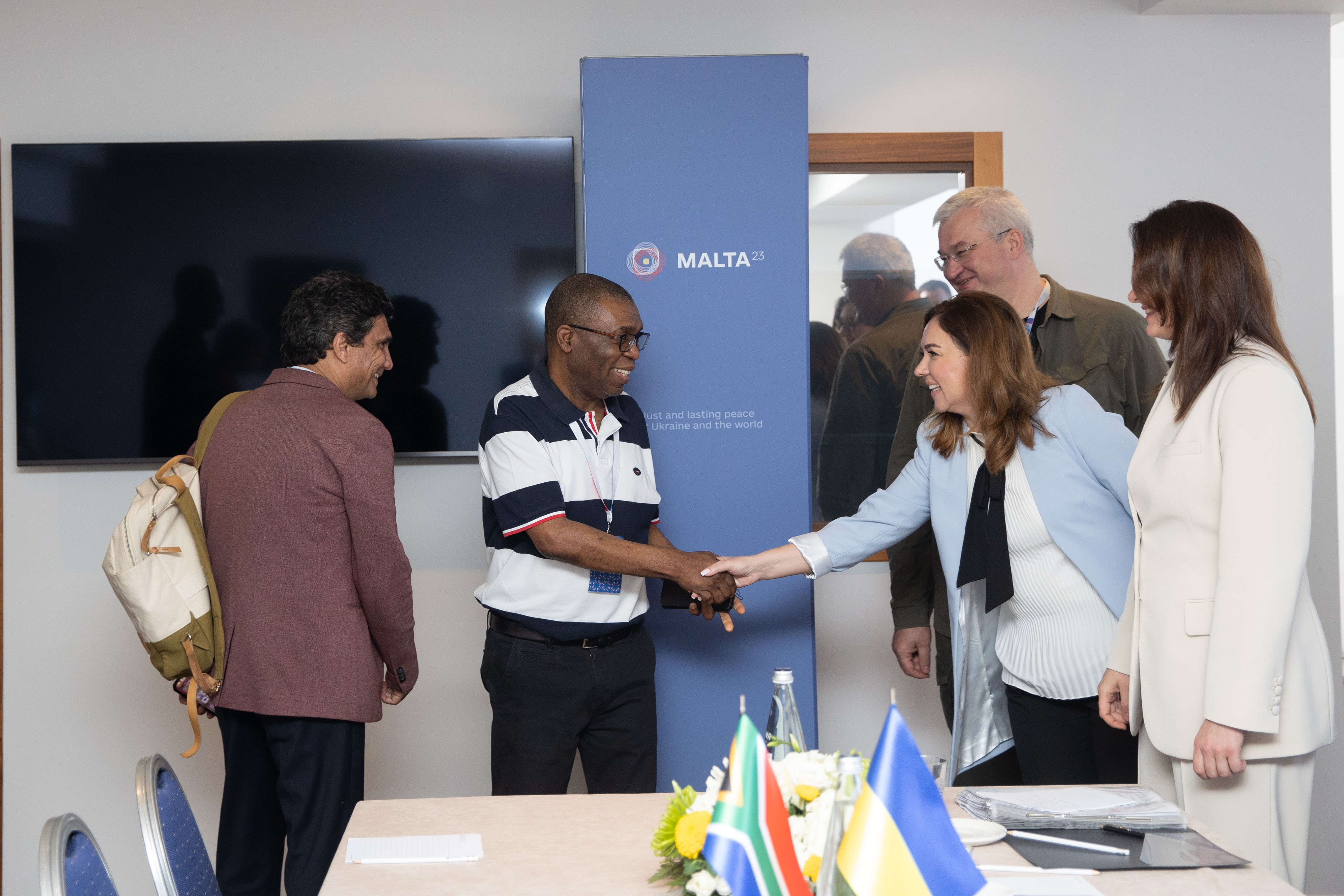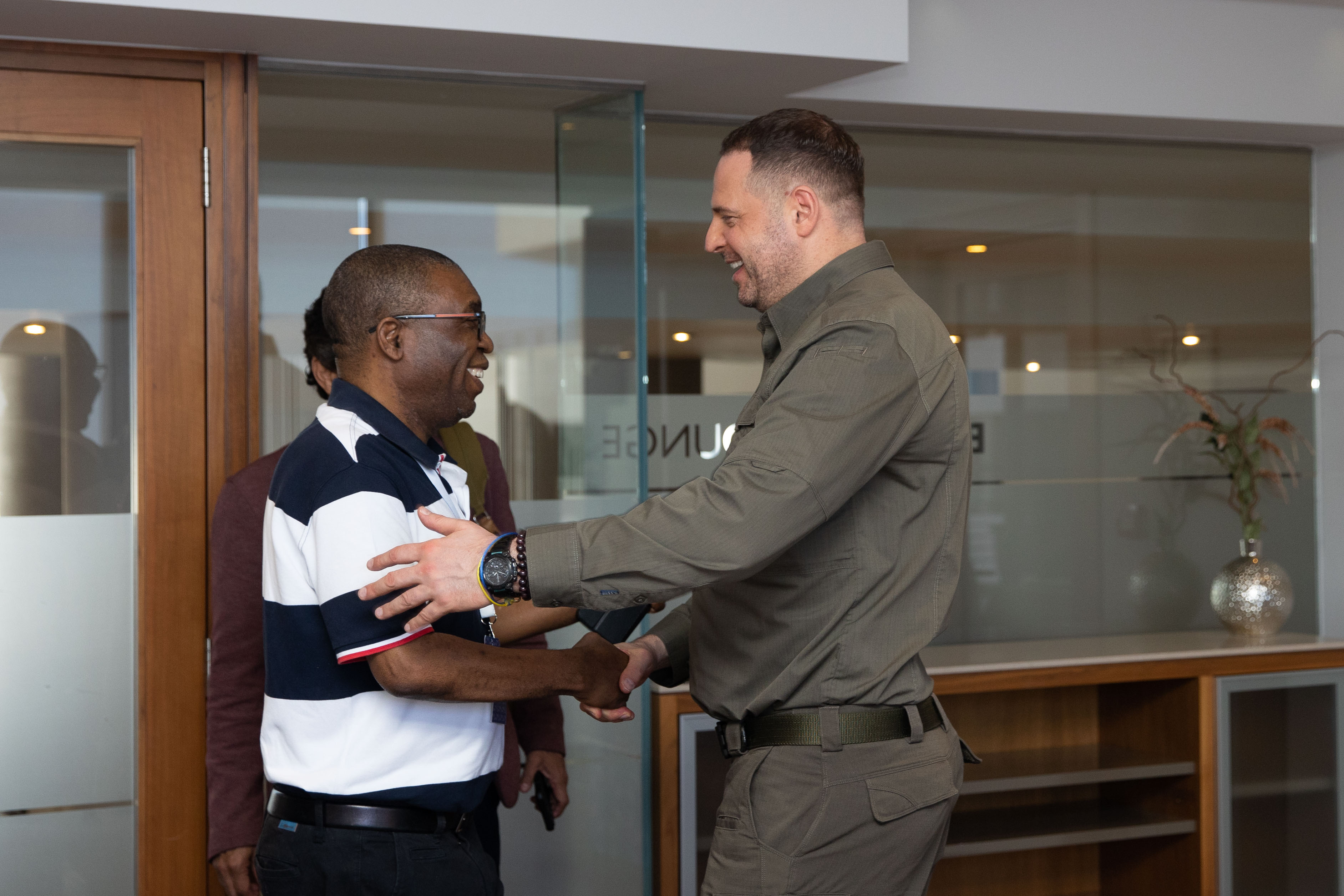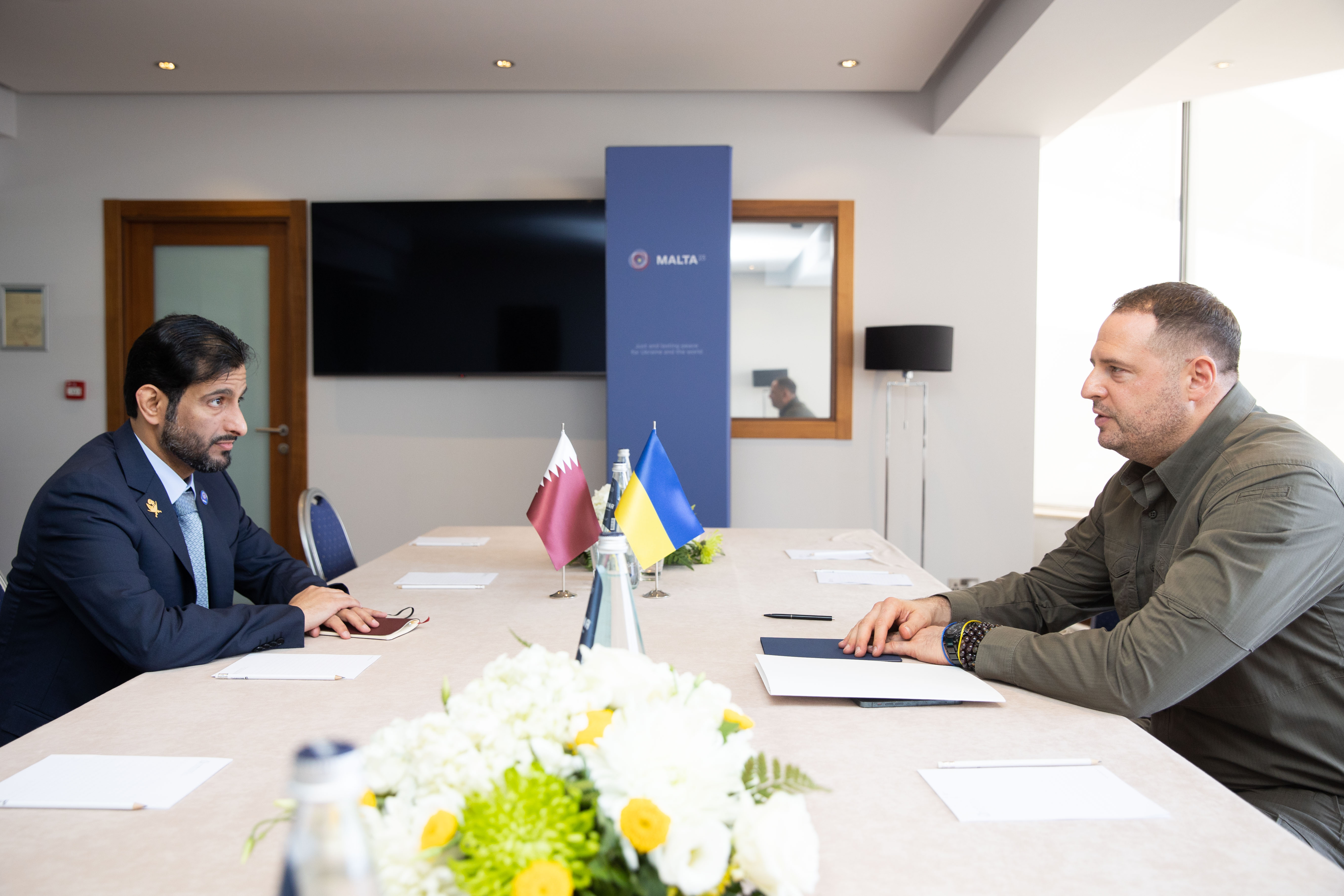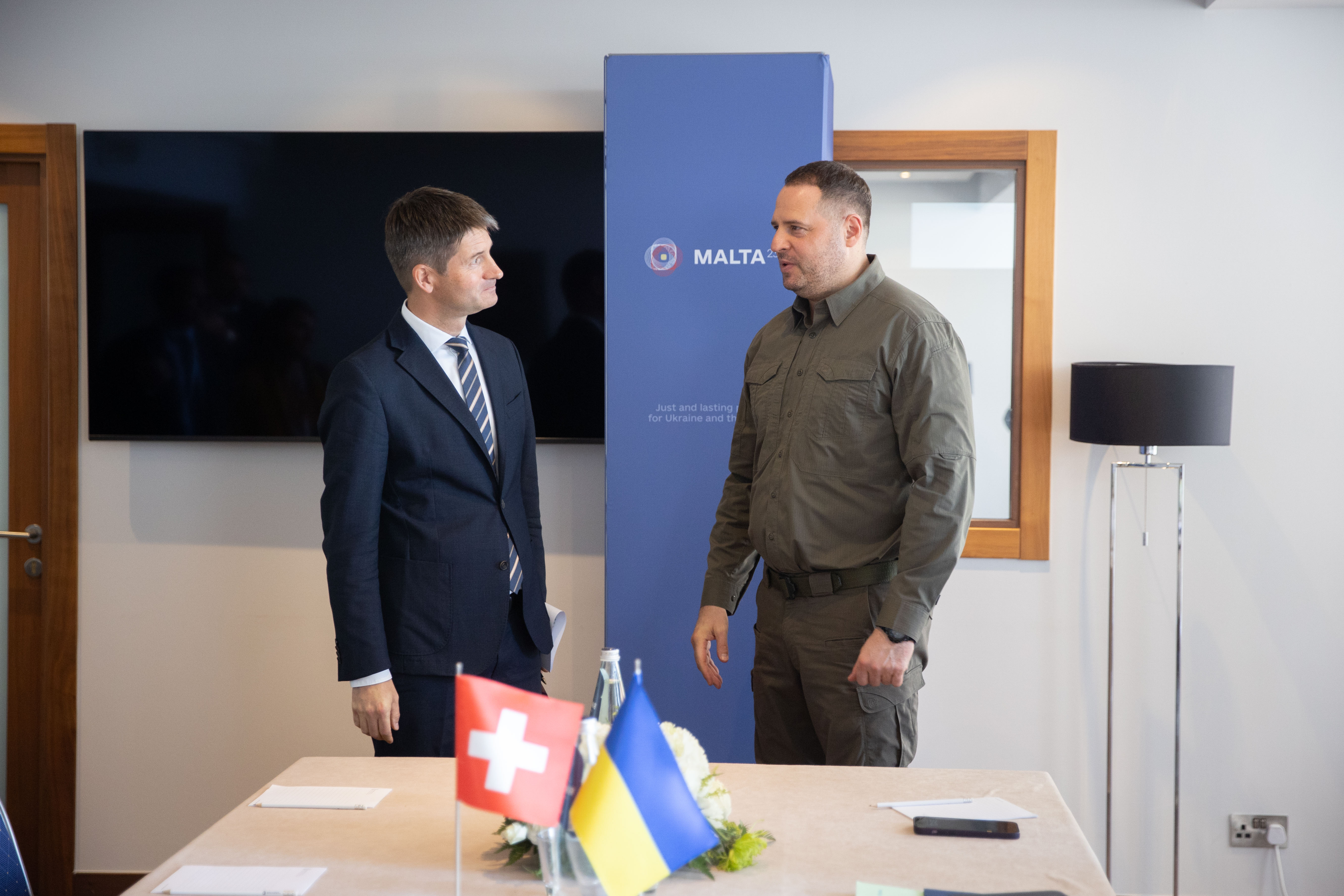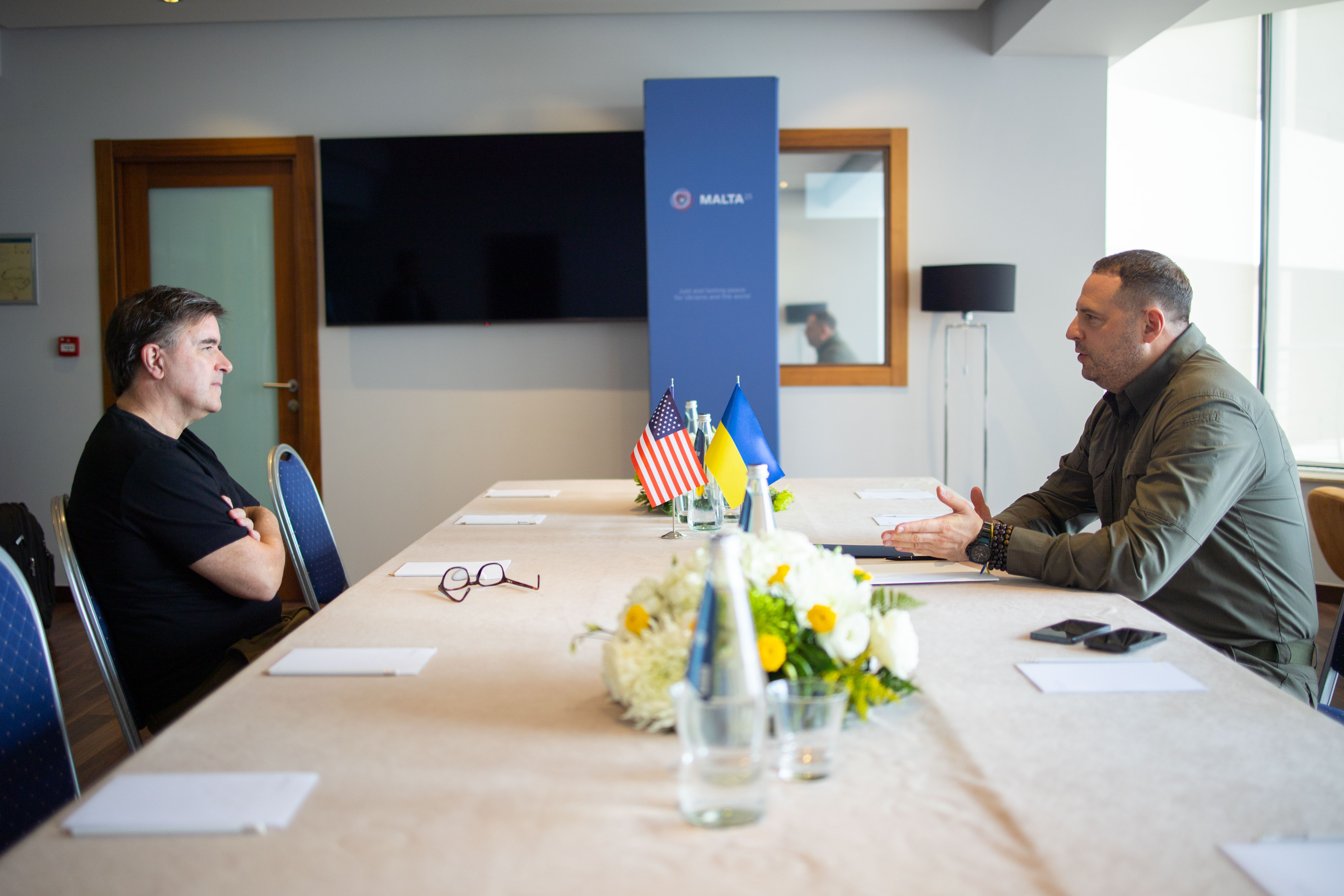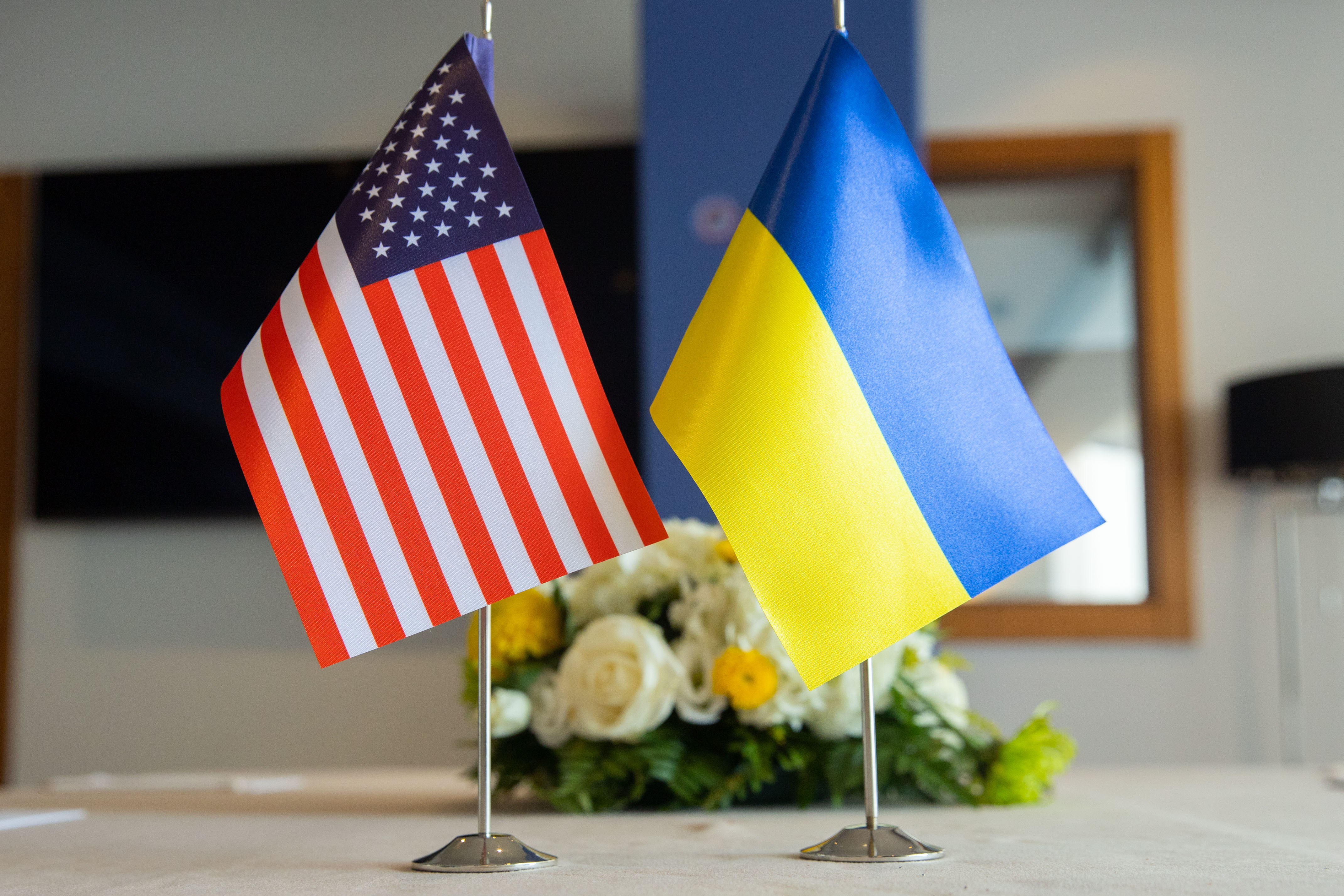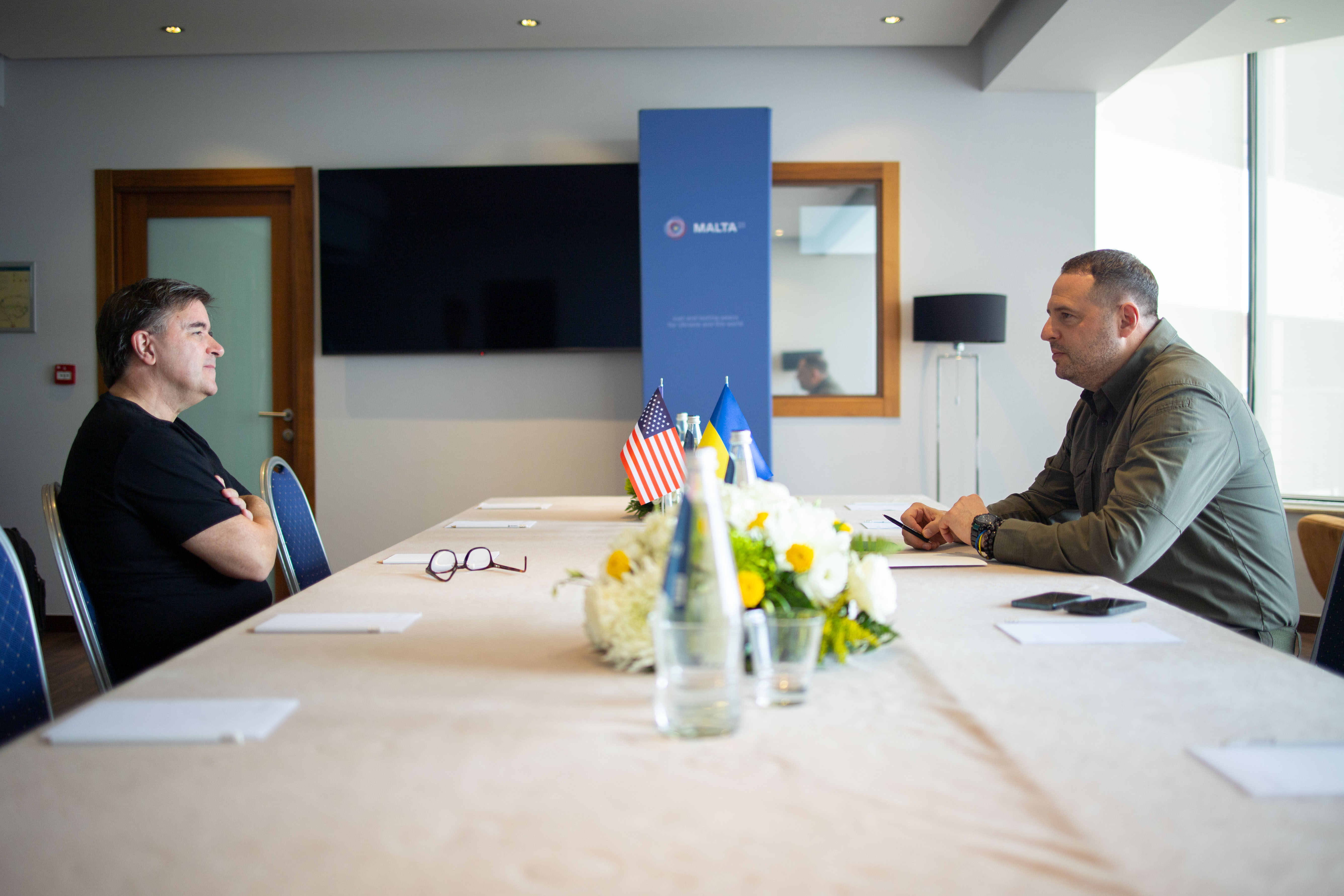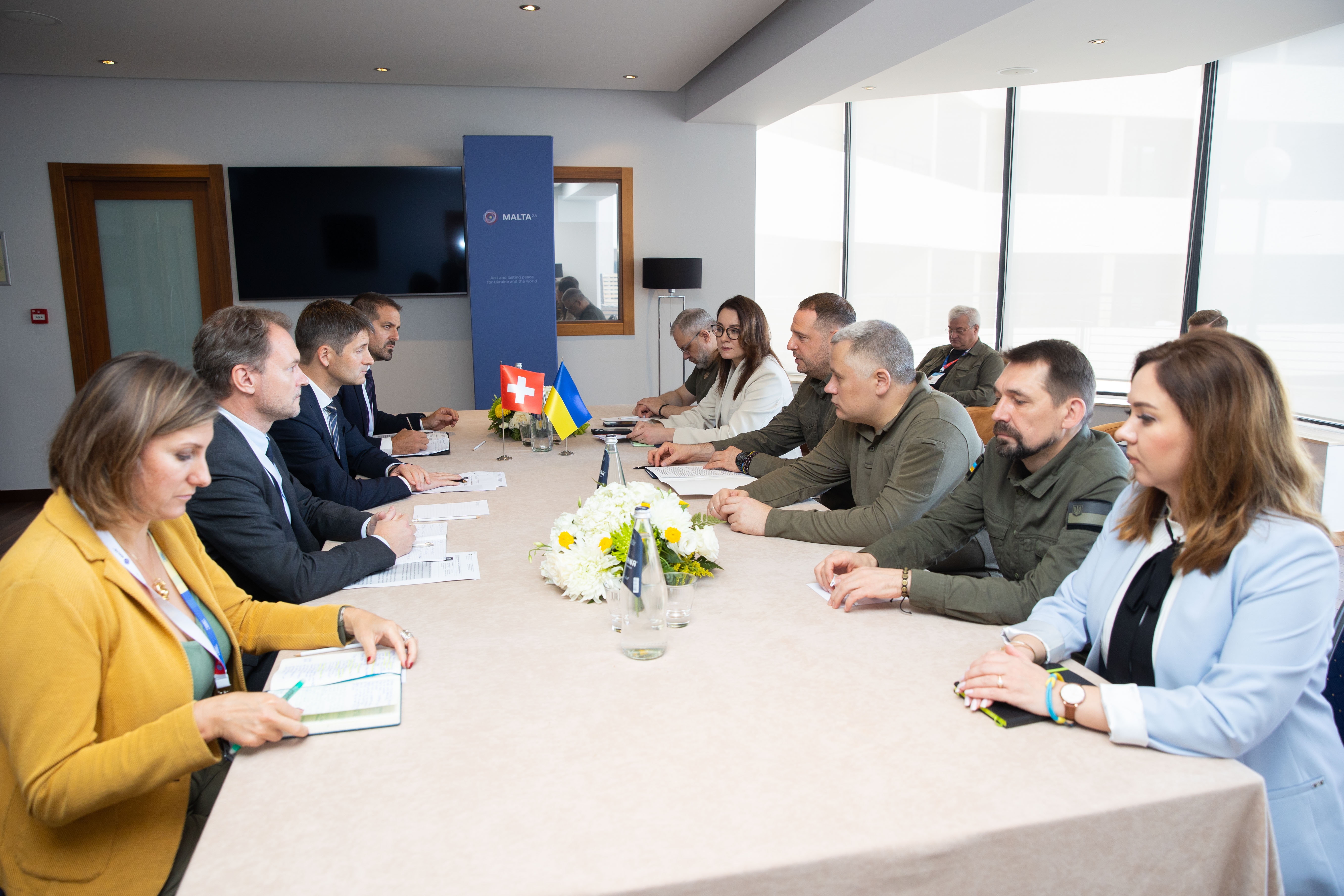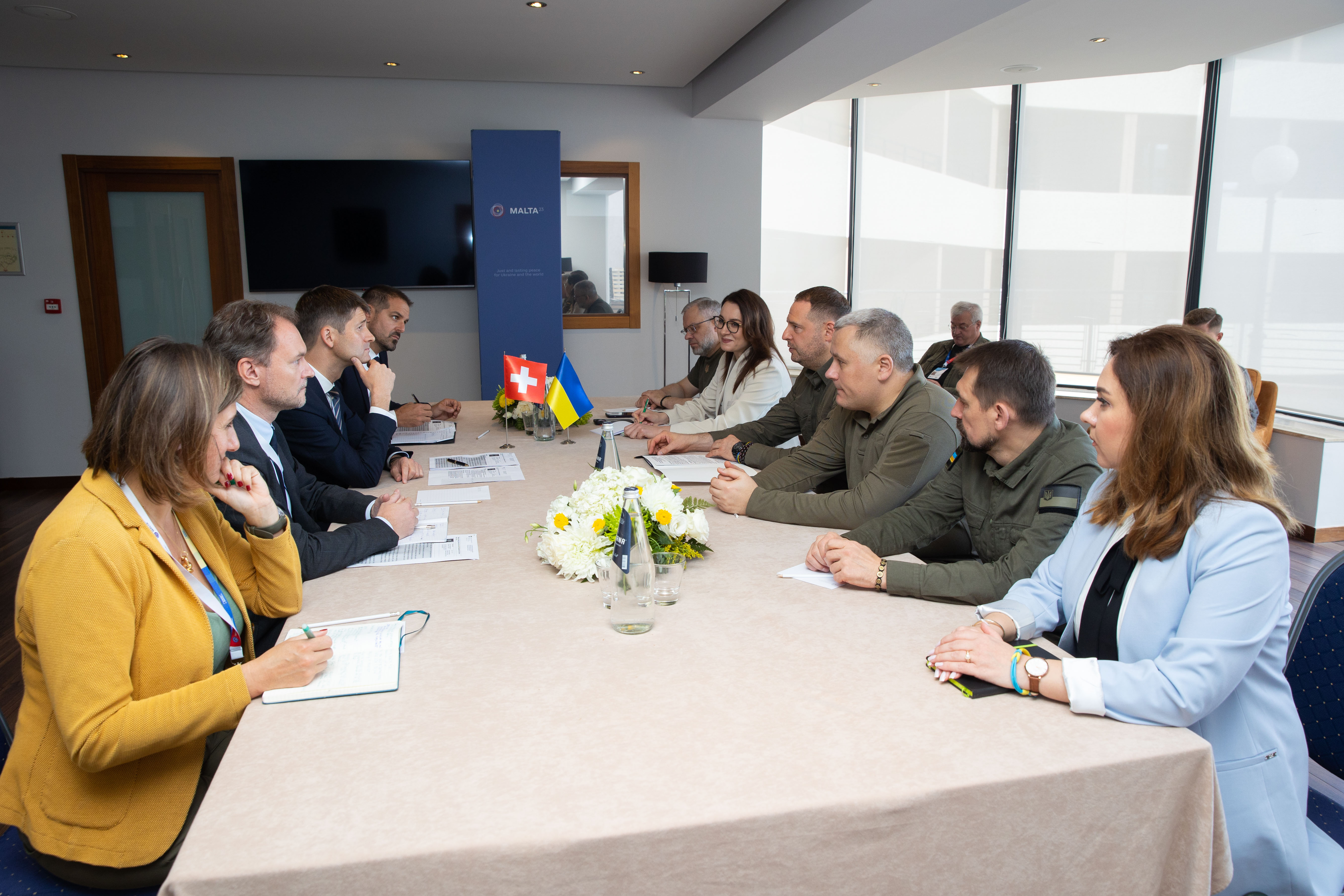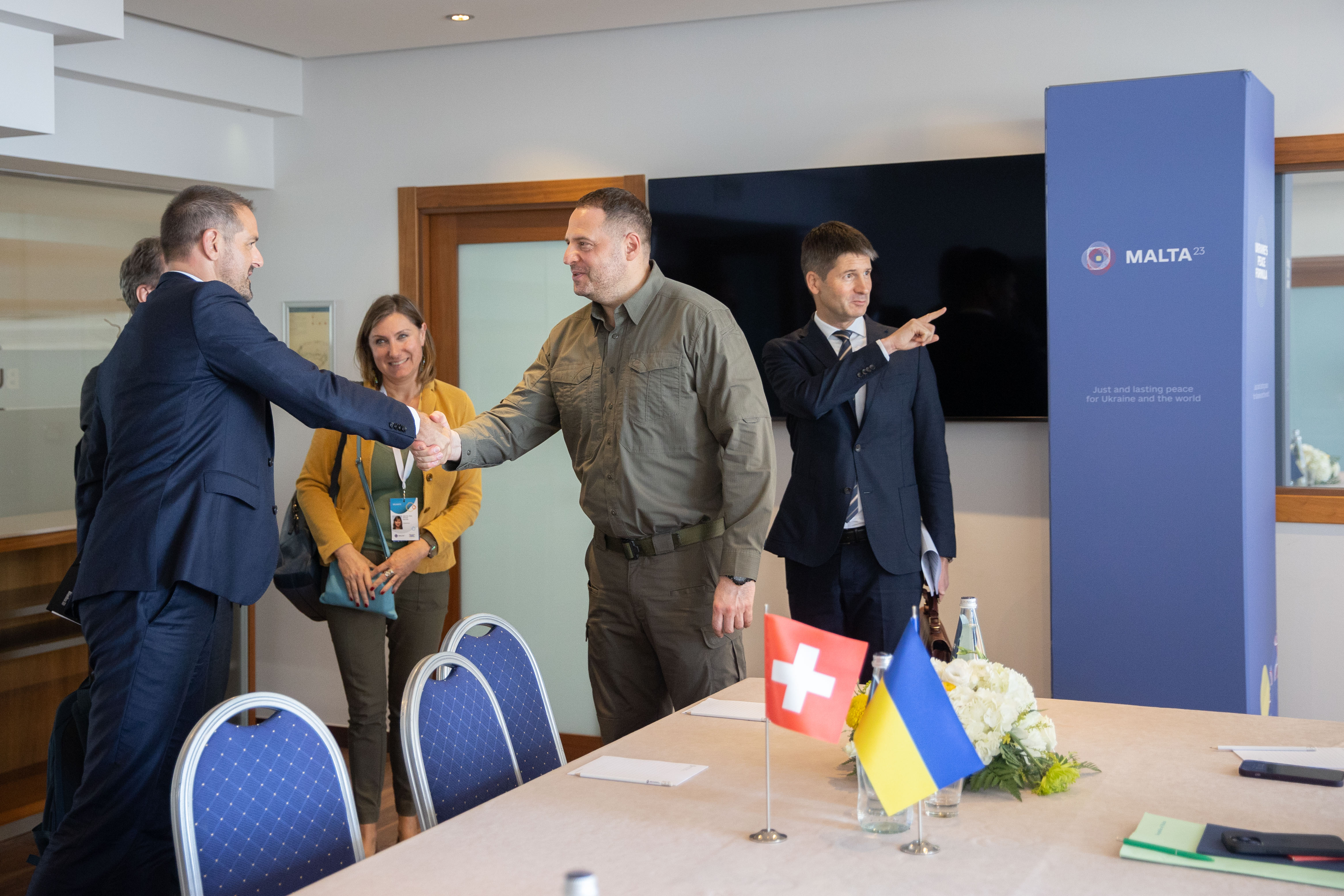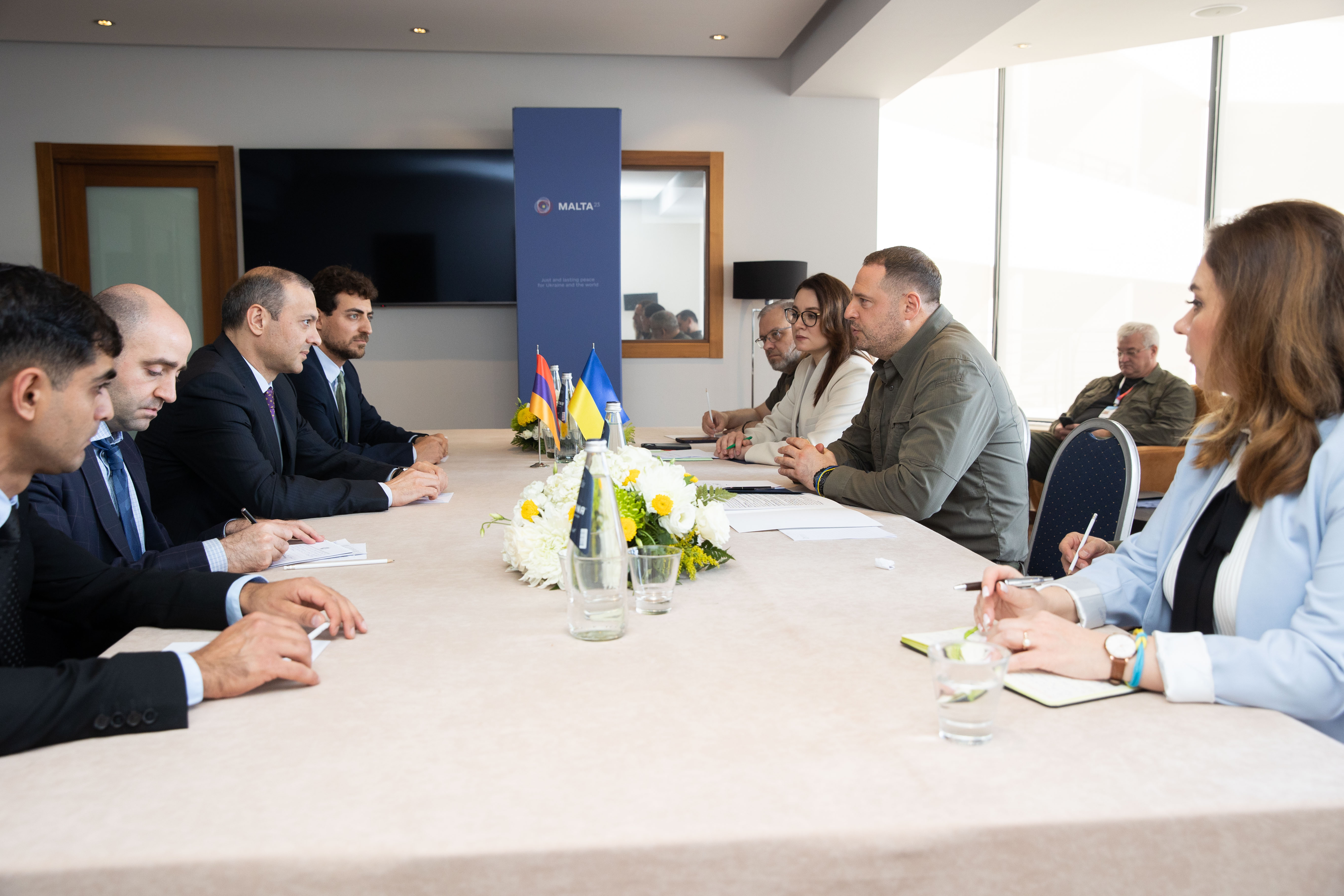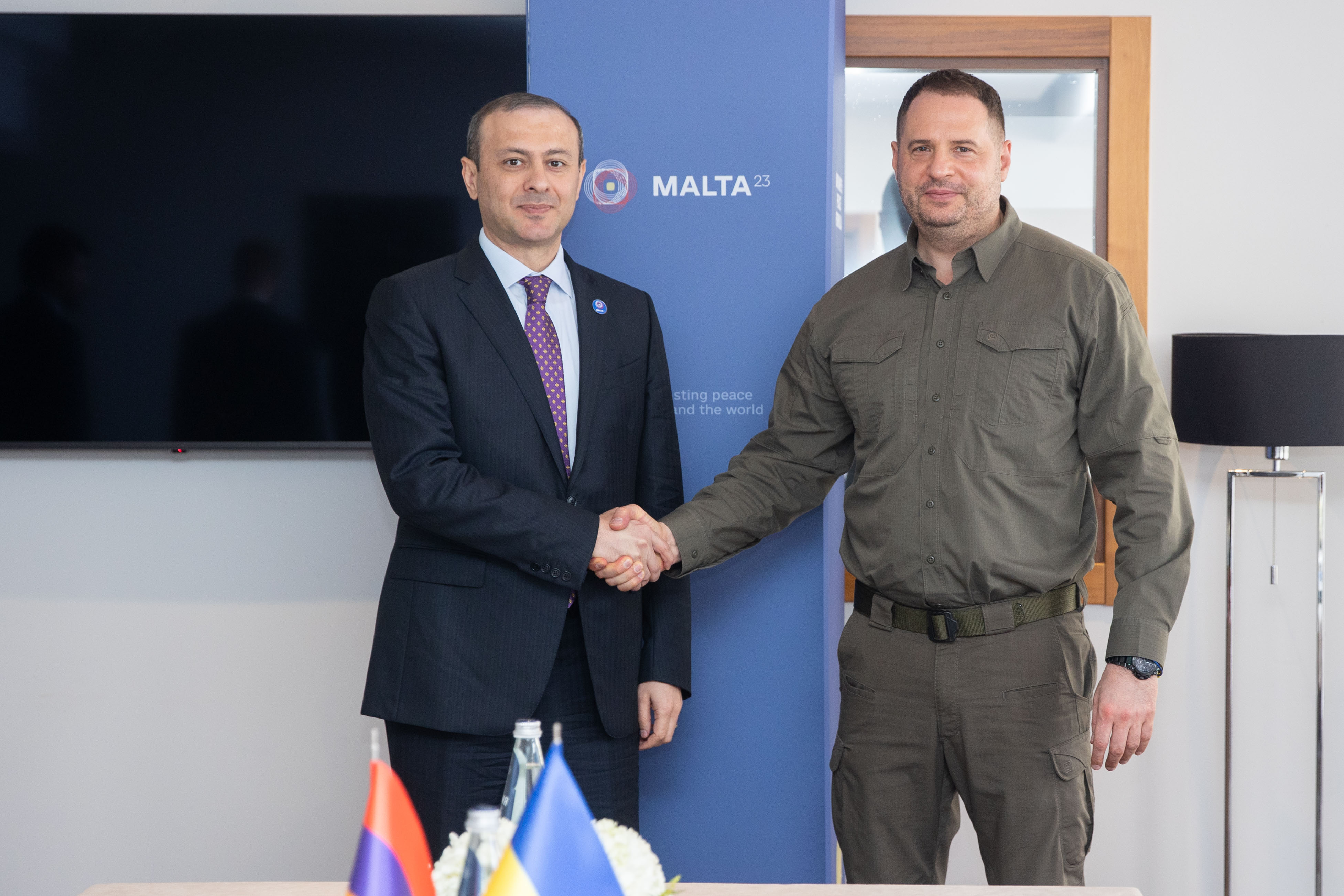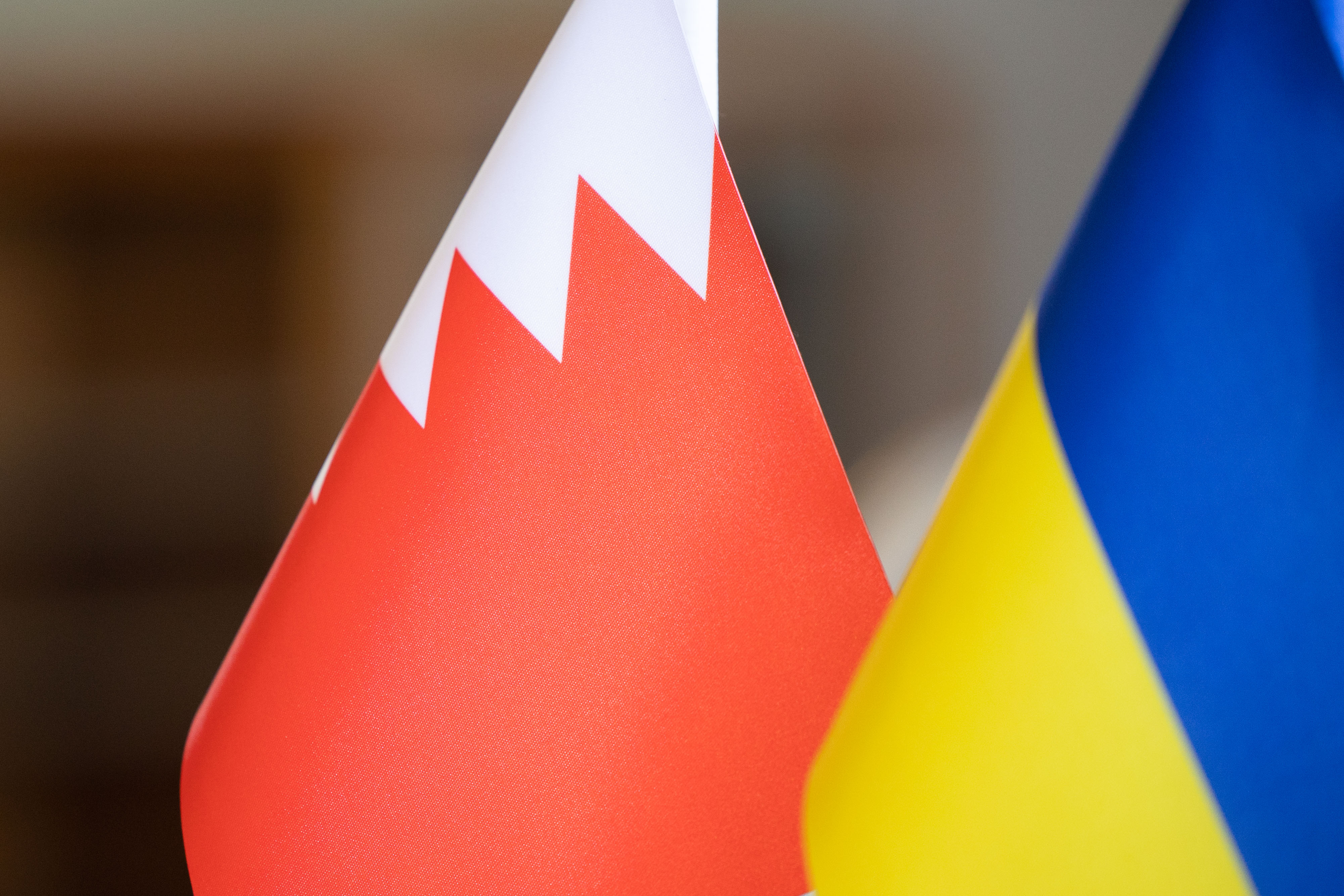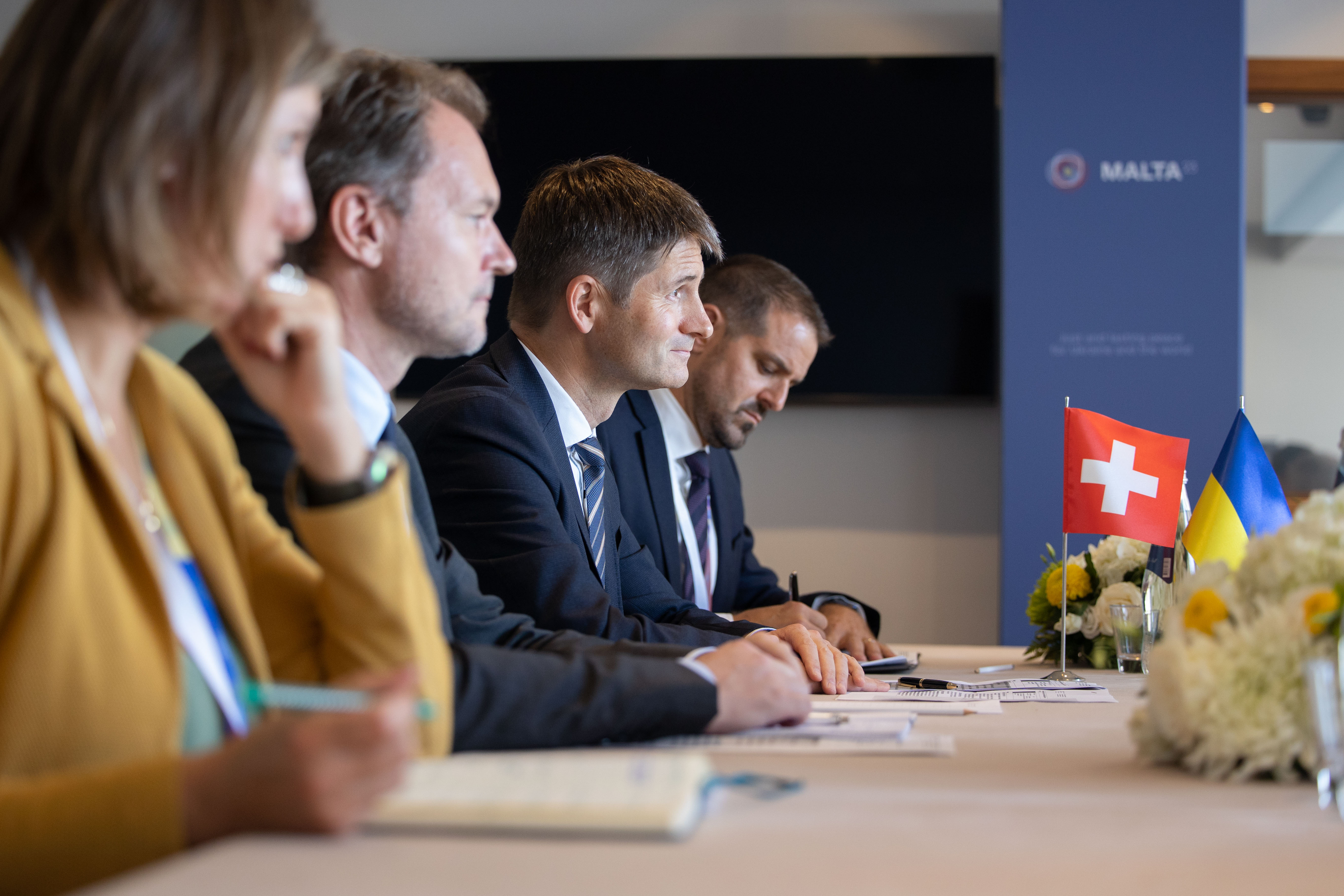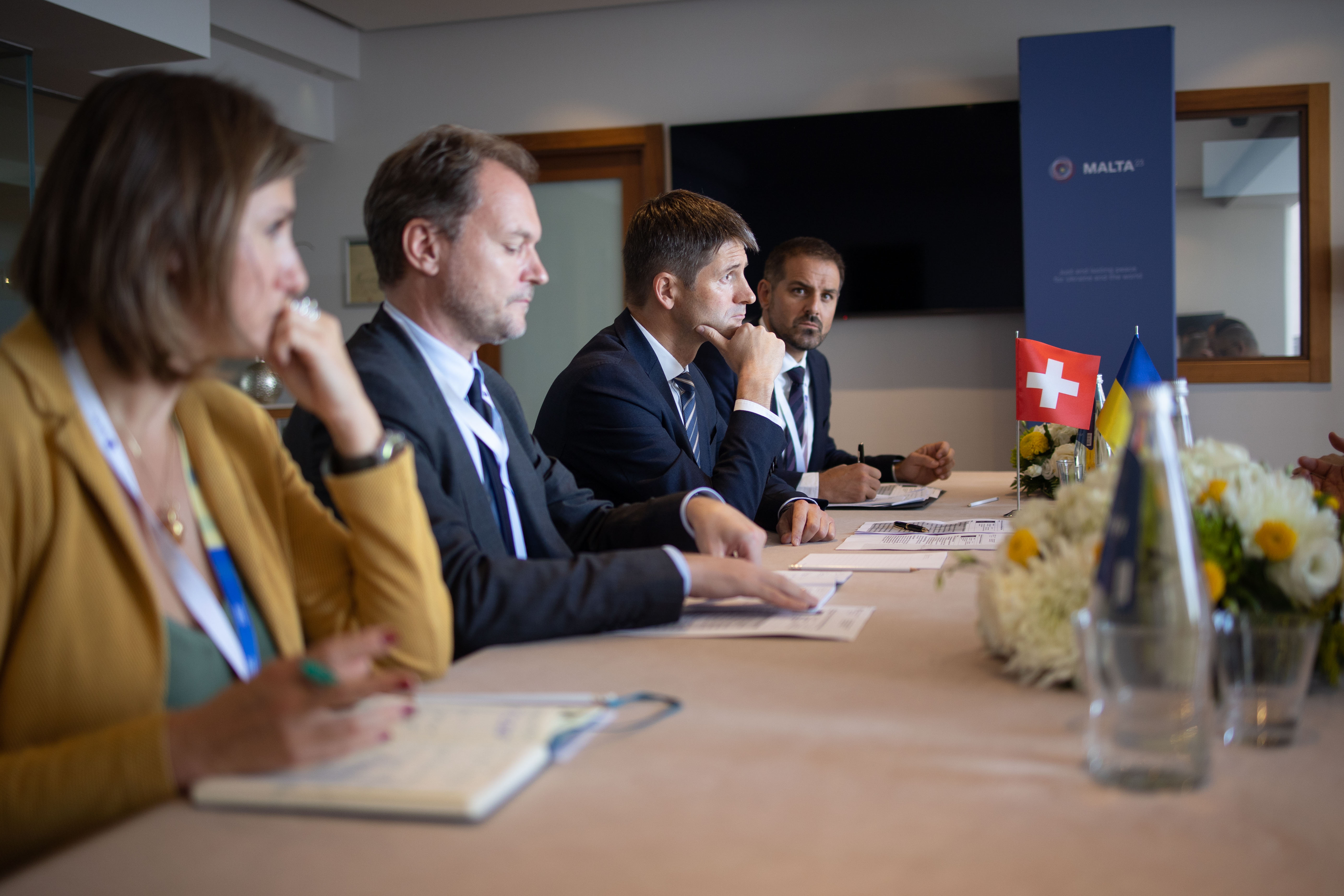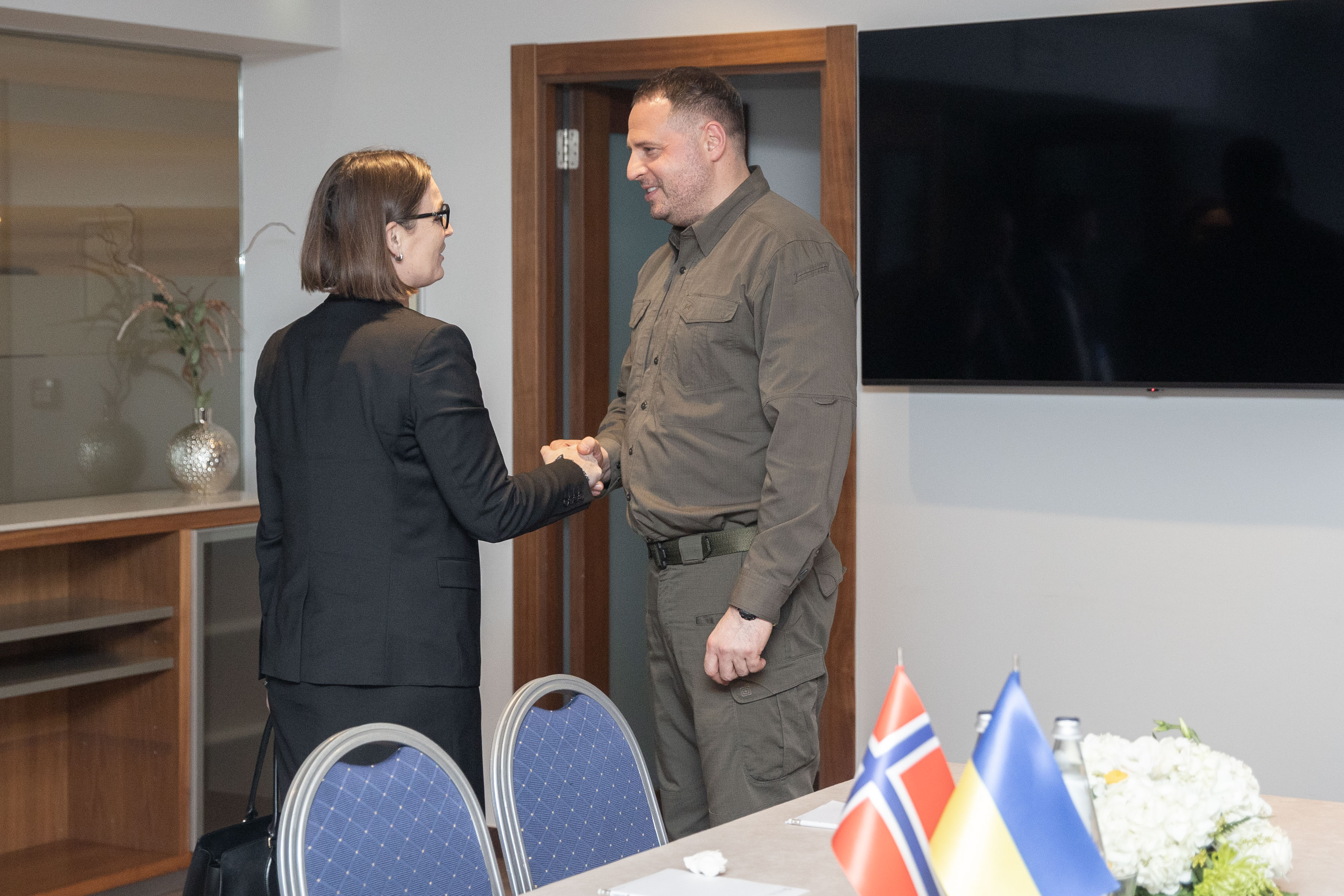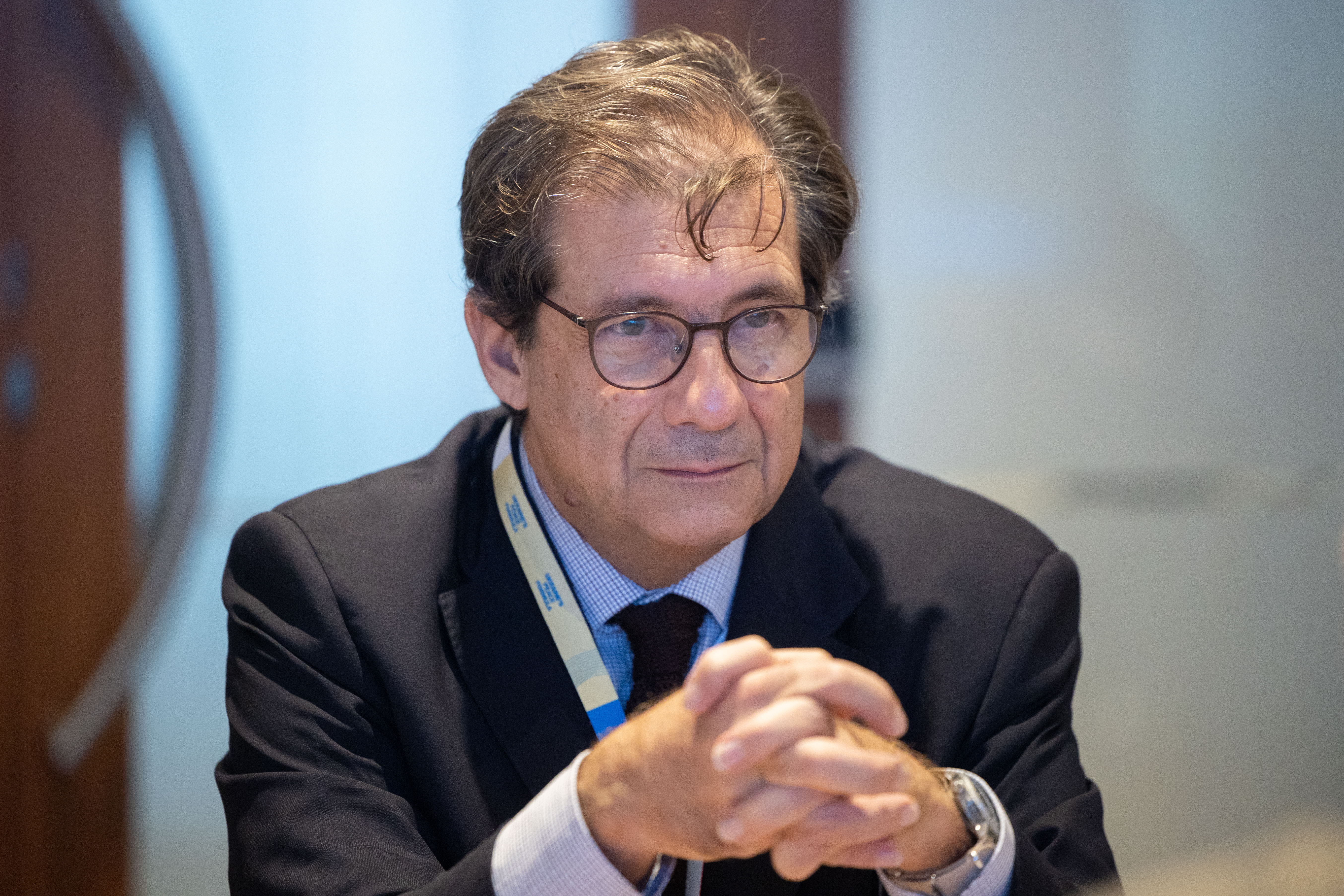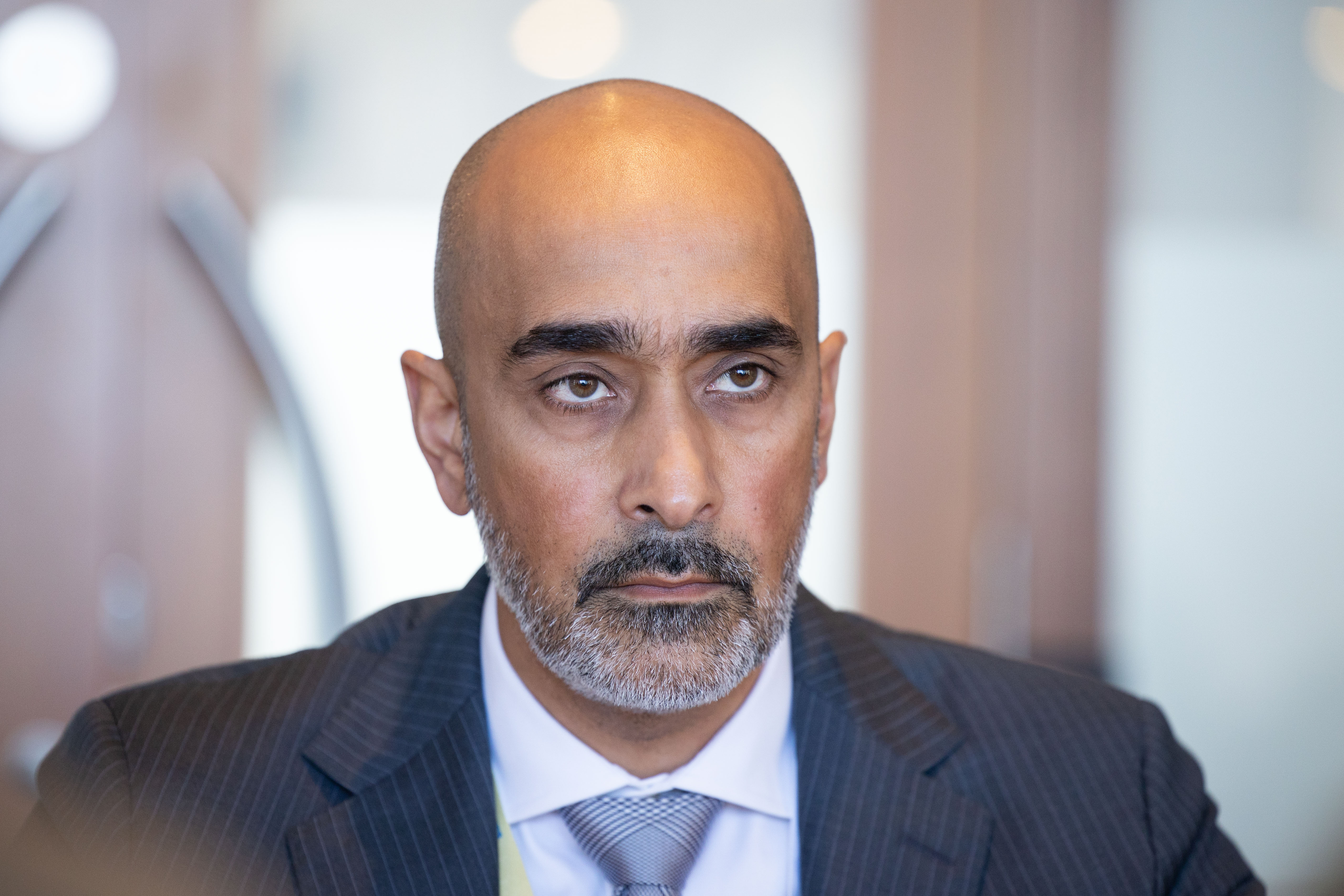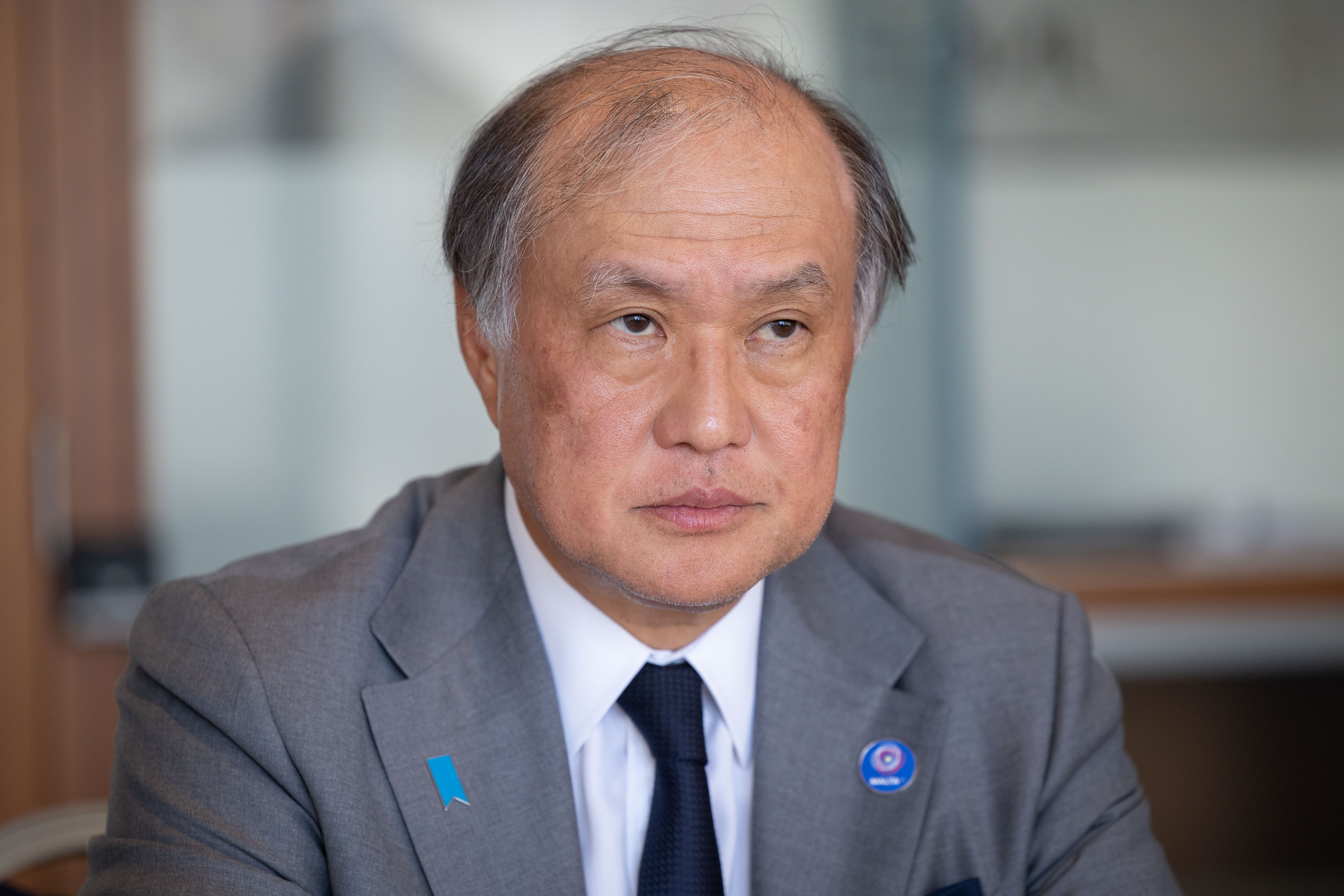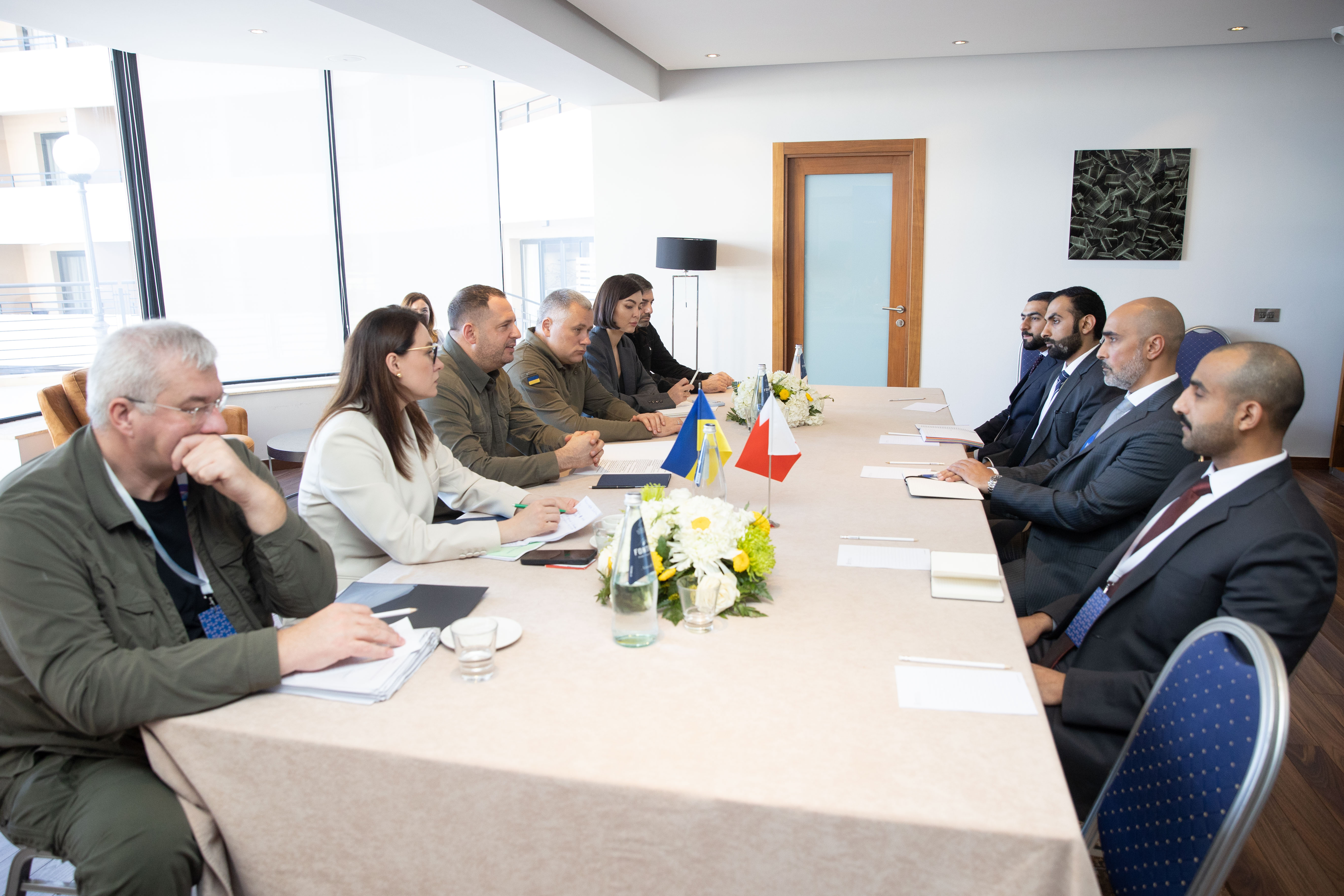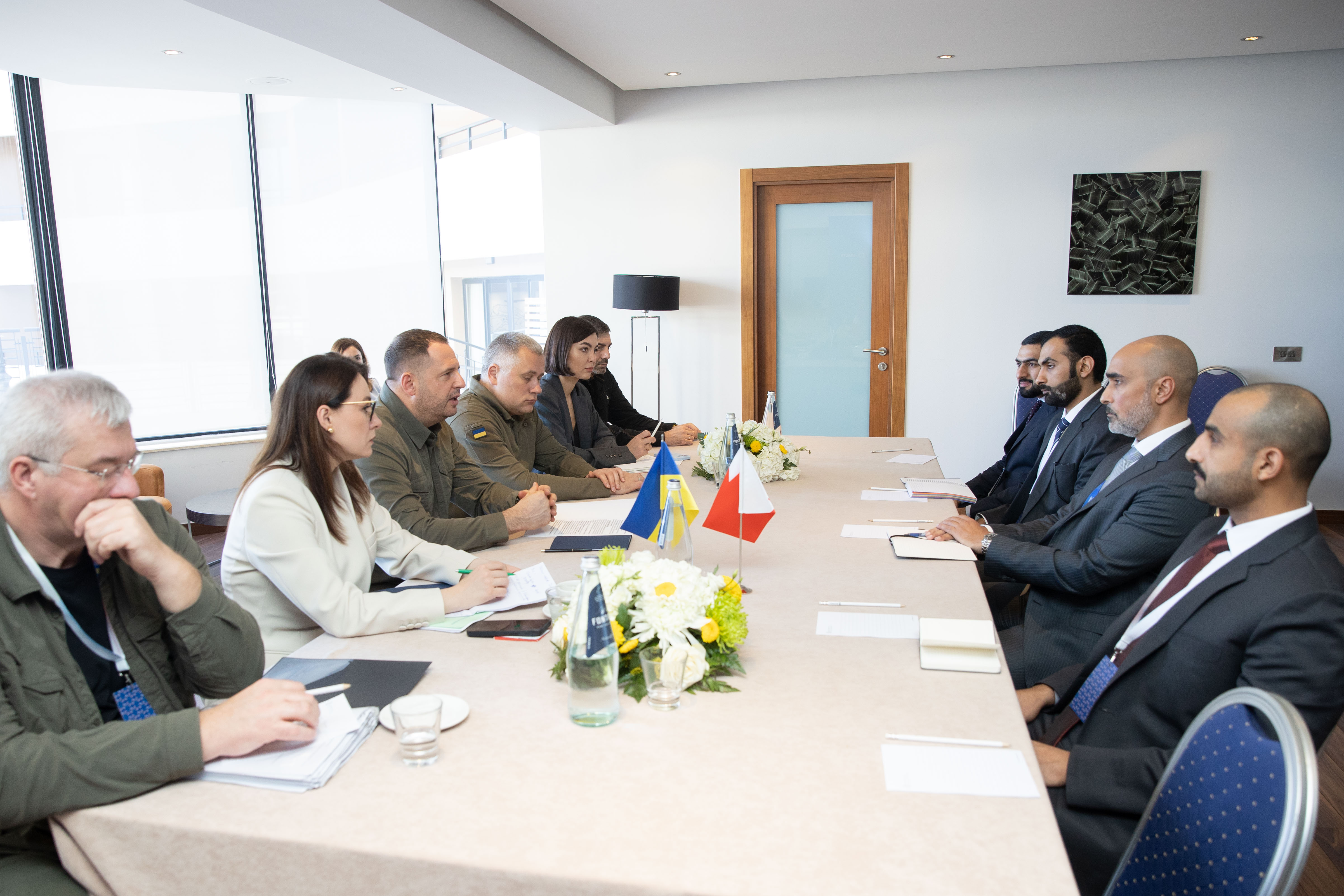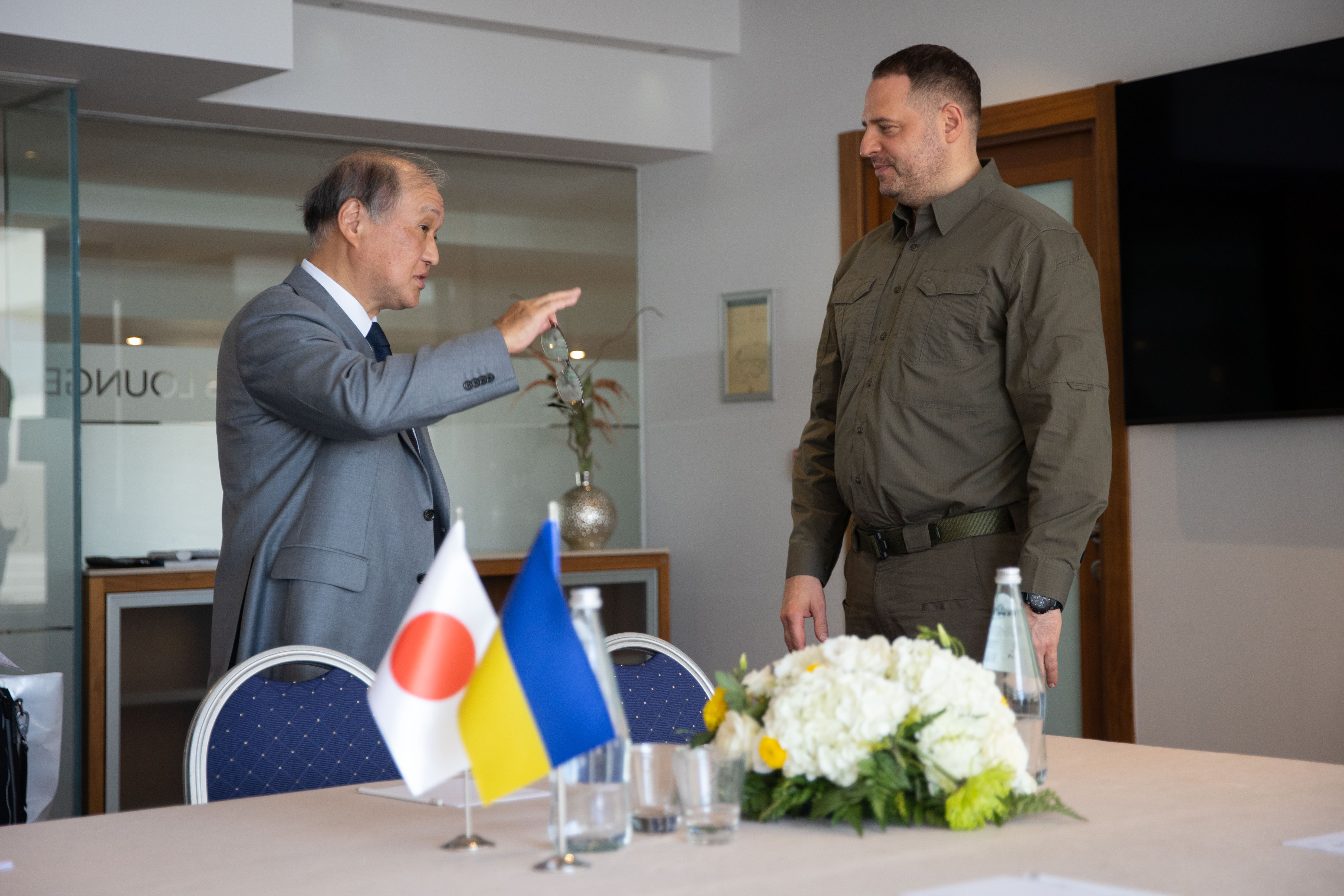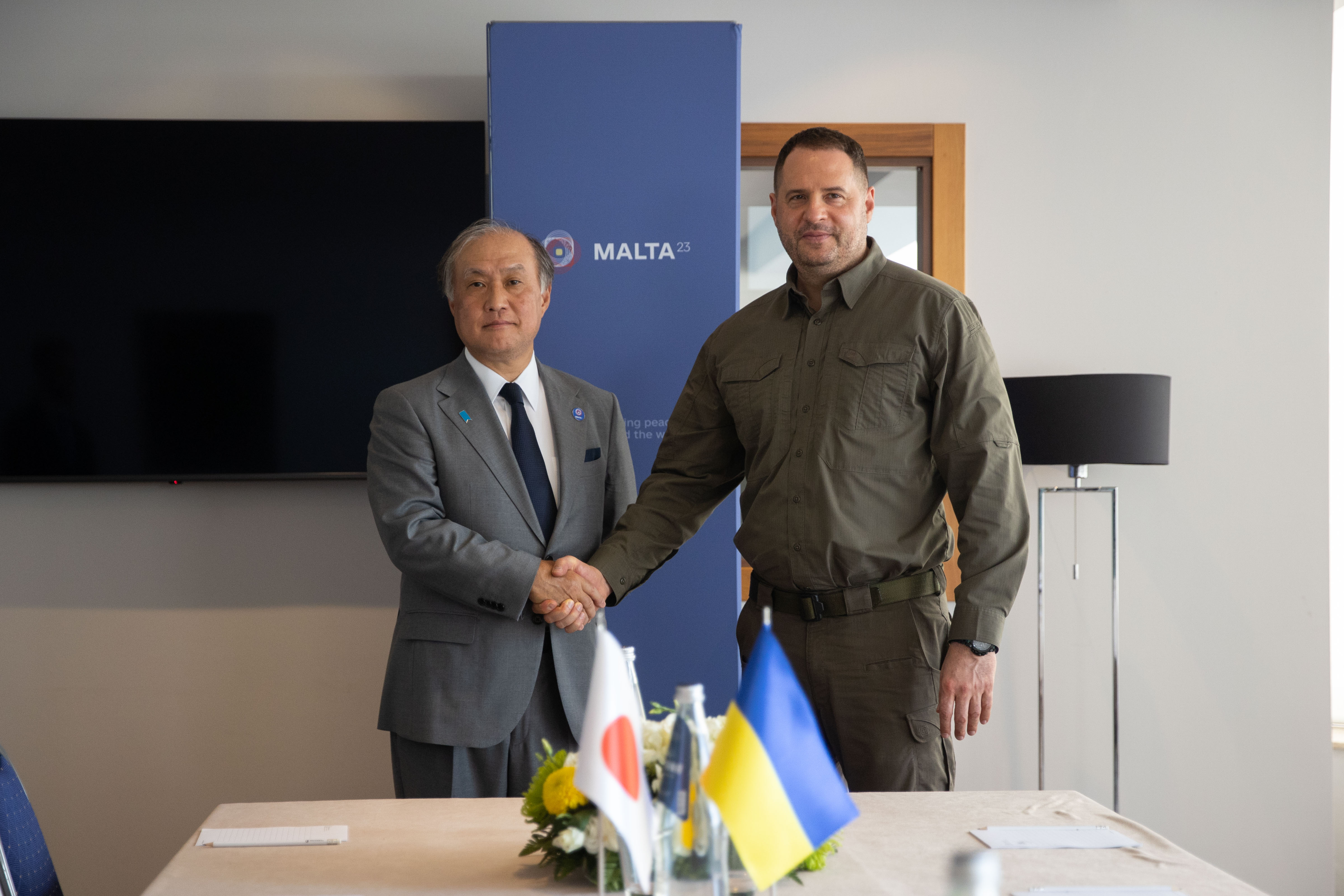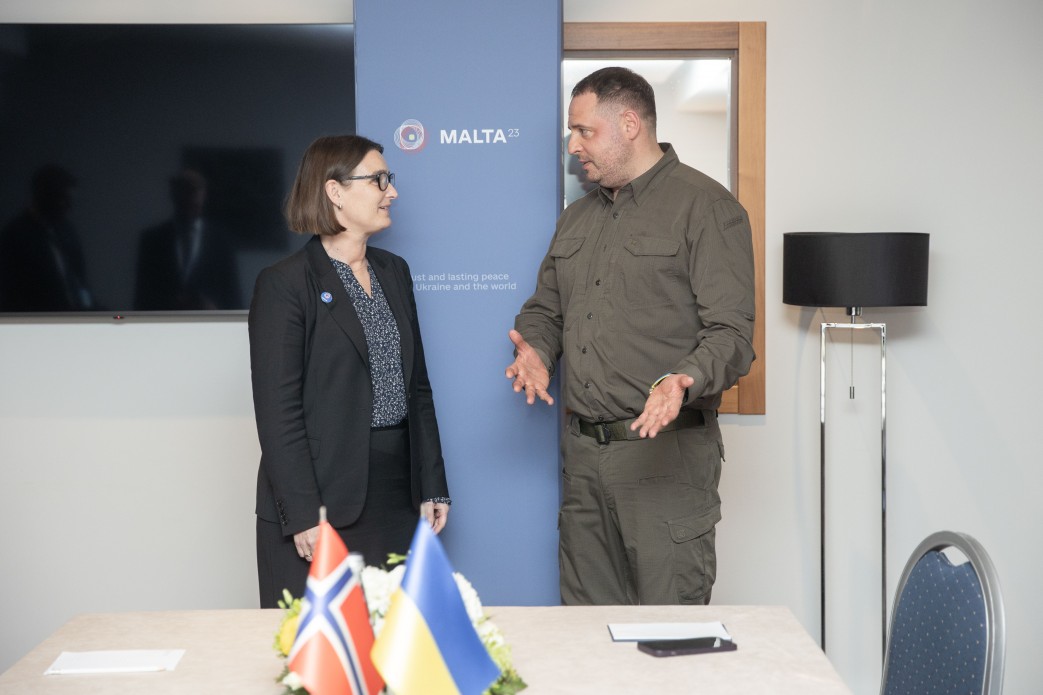On October 28th, in Malta, the third meeting of national security and foreign policy advisors on the implementation of President Volodymyr Zelenskyy's Peace Formula and the principles of restoring peace in Ukraine took place. Representatives from various countries and international organizations participated in this meeting.
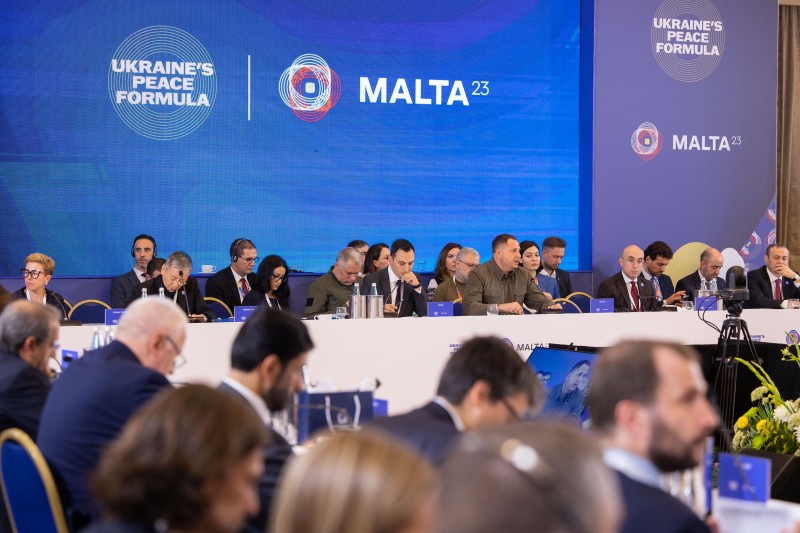 This meeting was a logical continuation of consultations in a similar format that occurred in Copenhagen, Denmark, in June of this year, and in Jeddah, Saudi Arabia, in August.
This meeting was a logical continuation of consultations in a similar format that occurred in Copenhagen, Denmark, in June of this year, and in Jeddah, Saudi Arabia, in August.
The third meeting was attended by diplomats from 66 countries and international organizations, including delegations from many countries in Asia, Africa, and Latin America. For comparison, the previous meeting had 42 delegations. The continuous growth in the number of participants in this format demonstrates the unwavering international support for the principles on which the Ukrainian Peace Formula, presented by Volodymyr Zelenskyy nearly a year ago, is based, as a foundation for achieving sustainable, just, and comprehensive peace.
Andriy Yermak, the head of the Office of the President of Ukraine and the leader of the Ukrainian delegation in Malta, expressed his gratitude to everyone present in the hall, as well as to the leaders of all countries whose representatives participated in this meeting.
"Your presence here is evidence that we are like-minded. That we are on the same side. The side of peace. The side of life," he said.
 According to Andriy Yermak, the previous advisors' meetings allowed f to form a common understanding of the prerequisites for the onset of peace and a secure post-war world order. As a result of meetings with ambassadors in Kyiv, specific plans for the implementation of the Peace Formula points were developed, and international working groups focused on the technical aspects of implementing these points were established.
According to Andriy Yermak, the previous advisors' meetings allowed f to form a common understanding of the prerequisites for the onset of peace and a secure post-war world order. As a result of meetings with ambassadors in Kyiv, specific plans for the implementation of the Peace Formula points were developed, and international working groups focused on the technical aspects of implementing these points were established.
The head of the Office of the President of Ukraine emphasized that more and more states that respect international law and the principles of the UN Charter are joining efforts to develop the plan.
"The architecture that we are creating together can become a solution not only for Ukraine. It might be a universal framework that could and should be used elsewhere. Anywhere, where there is a need to protect peace and justice," Andriy Yermak said.
During the third meeting of advisors in Malta, specific points of the Peace Formula and their implementation were discussed. Attention was focused on five key points of the Peace Formula: "Radiation and nuclear safety," "Food security," "Energy security," "Release of prisoners and deported persons," and "Restoration of Ukraine's territorial integrity and the world order."
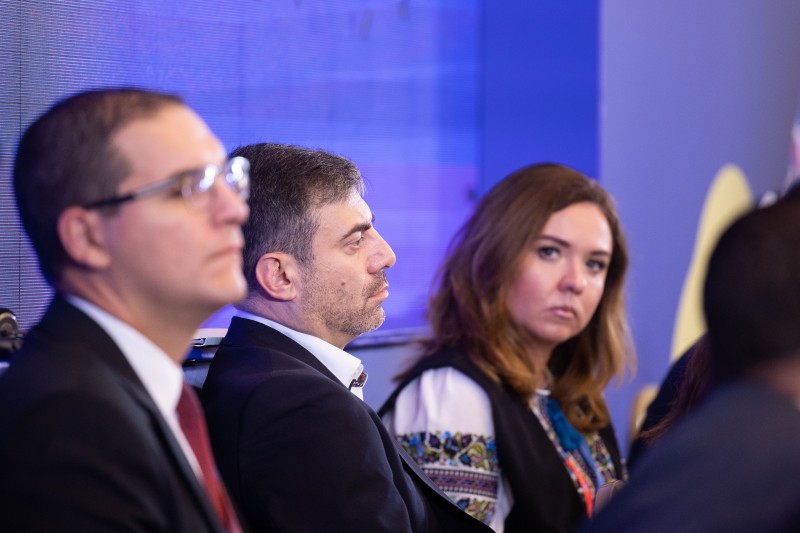 Working groups consisting of representatives from diplomatic institutions of various countries from all regions of the world developed plans for each of these points. Representatives from different countries, as well as Ukrainian officials, presented and discussed each point of the plan.
Working groups consisting of representatives from diplomatic institutions of various countries from all regions of the world developed plans for each of these points. Representatives from different countries, as well as Ukrainian officials, presented and discussed each point of the plan.
For example, members of the international working group and Minister of Energy of Ukraine Herman Halushchenko presented a plan for nuclear and radiation safety. The goal of this plan is a complete withdrawal of Russian military and civilian personnel, weapons, and equipment from the territory of the Zaporizhzhia Nuclear Power Plant, and the transfer of control over the plant to Ukraine. The plan includes strengthening the role of the IAEA in monitoring compliance with the rules of nuclear facility operation, defining technical conditions for a safe return of the Zaporizhzhia Nuclear Power Plant under Ukraine's control, and exploring accountability mechanisms for non-compliance with internationally recognized nuclear safety and security principles.
During the meeting in Malta, participants also discussed the plan for implementing the point regarding energy security. Among other things, it involves the development of the energy resilience model as part of a joint risk mitigation strategy aimed at preventing energy security disruptions and any further aggression using energy as an external and security leverage.
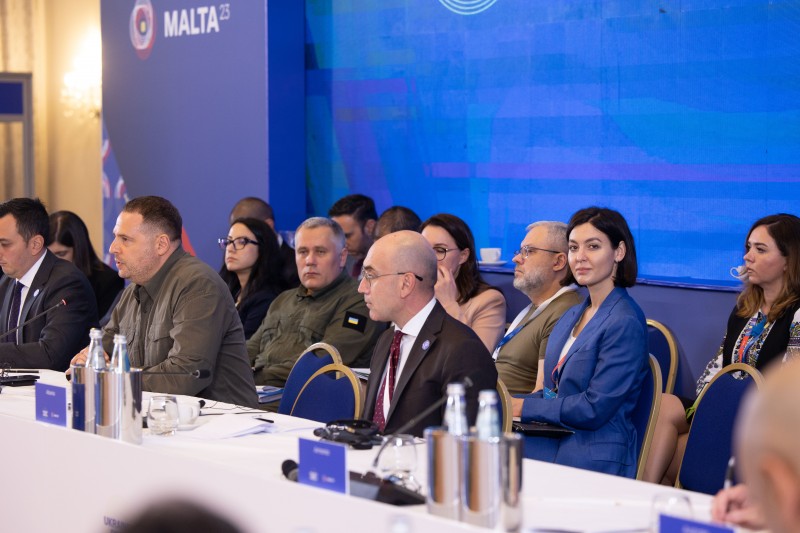
Ukraine's First Deputy Prime Minister, Minister of Economic Affairs Yulia Svyrydenko, along with representatives of the international working group, presented a plan that includes establishing international security guarantees for uninterrupted food supplies. To achieve this, it is proposed to enhance the protection of the port and logistics infrastructure in Ukraine, ensure demining of sea routes in the Black Sea necessary for safe navigation in and out of Ukrainian ports, provide necessary support for insurance of vessels and goods transported to and out of Ukrainian seaports, and more.
Additionally, with the participation of Verkhovna Rada Commissioner for Human Rights Dmytro Lubinets, a plan for the return of deported Ukrainian children, civilian hostages, and prisoners of war was presented. The action plan includes the establishment of an international monitoring group, the determination of tools for gathering information about the deported children, civilian hostages and POWs and gaining access to places where they are held, imposing additional sanctions against Russia and its officials for violations of international humanitarian law, and international pressure on Russia in order to grant the UN and ICRC unfettered access to Ukrainian POWs, and more.
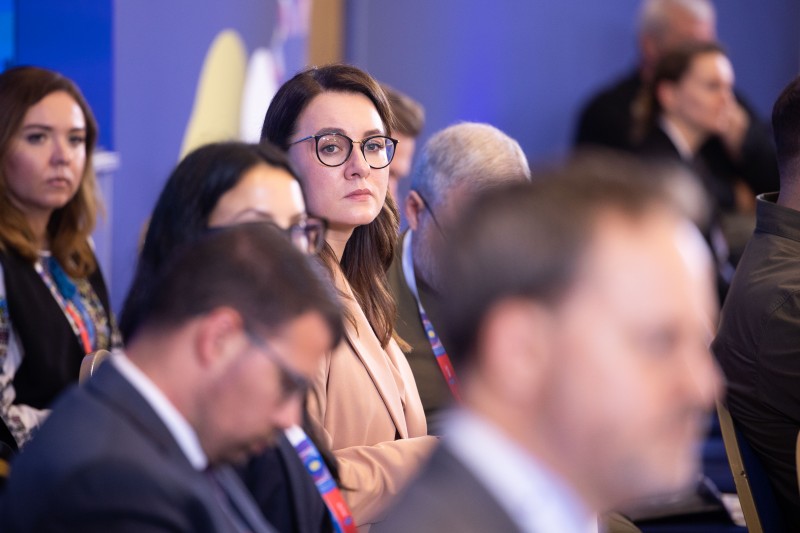
The plan for implementing the point about adhering to the UN Charter and restoring Ukraine's territorial integrity and the world order was presented by Deputy Minister of Foreign Affairs Mykola Tochytsky and Member of Parliament Halyna Mykhailiuk. The aim of this plan is to improve existing mechanisms for implementing basic Principle of respect for the territorial integrity and sovereignty enshrined in the UN Charter.
To achieve these goals, the plan suggests focusing efforts on: Reform of the UN Security Council and limiting the right of veto; strengthening the role of the International Court of Justice of the United Nations via recognition of the Court's mandatory jurisdiction over all disputes regarding violations of the UN Charter and ensuring the immediate implementation of its decisions; establishing an early warning system for actions violating states' sovereignty and territorial integrity.
"Each one of our meetings against the backdrop of this terrible war is evidence that we have become more than colleagues. We have become friends. I am confident that ending the largest war in Europe since World War II with a just, sustainable, and comprehensive peace will have a tremendous positive impact on resolving other conflicts occurring in the world. And today, we are sending another strong message to all of humanity: we are bringing peace closer. Just. Sustainable. Durable. For Ukraine. For the world. For all," Andriy Yermak concluded.
The Ukrainian delegation also included Deputy Heads of the Office of the President of Ukraine Ihor Zhovkva and Andriy Sybyha, as well as advisors to the Head of the Office of the President of Ukraine Daria Zarivna and Oleksandr Bevz.


